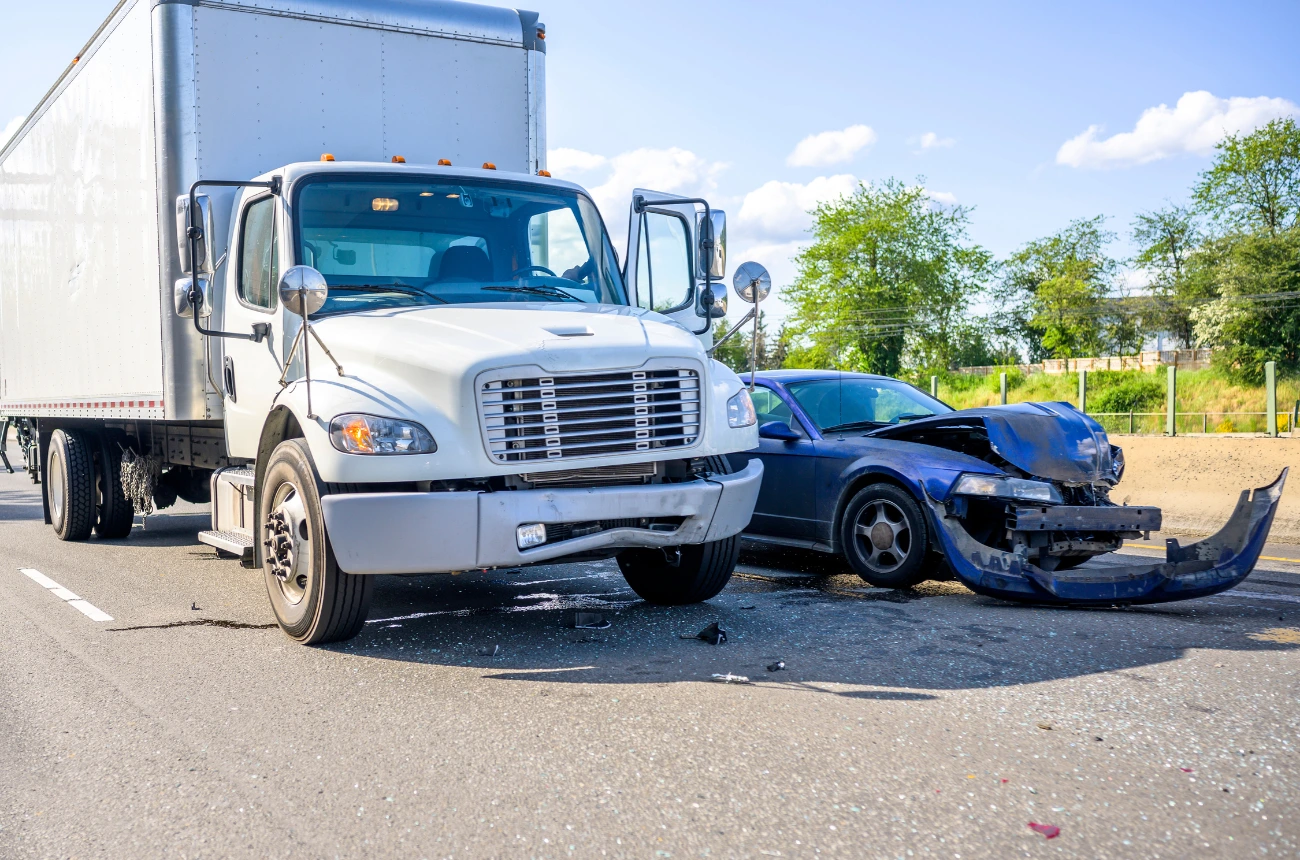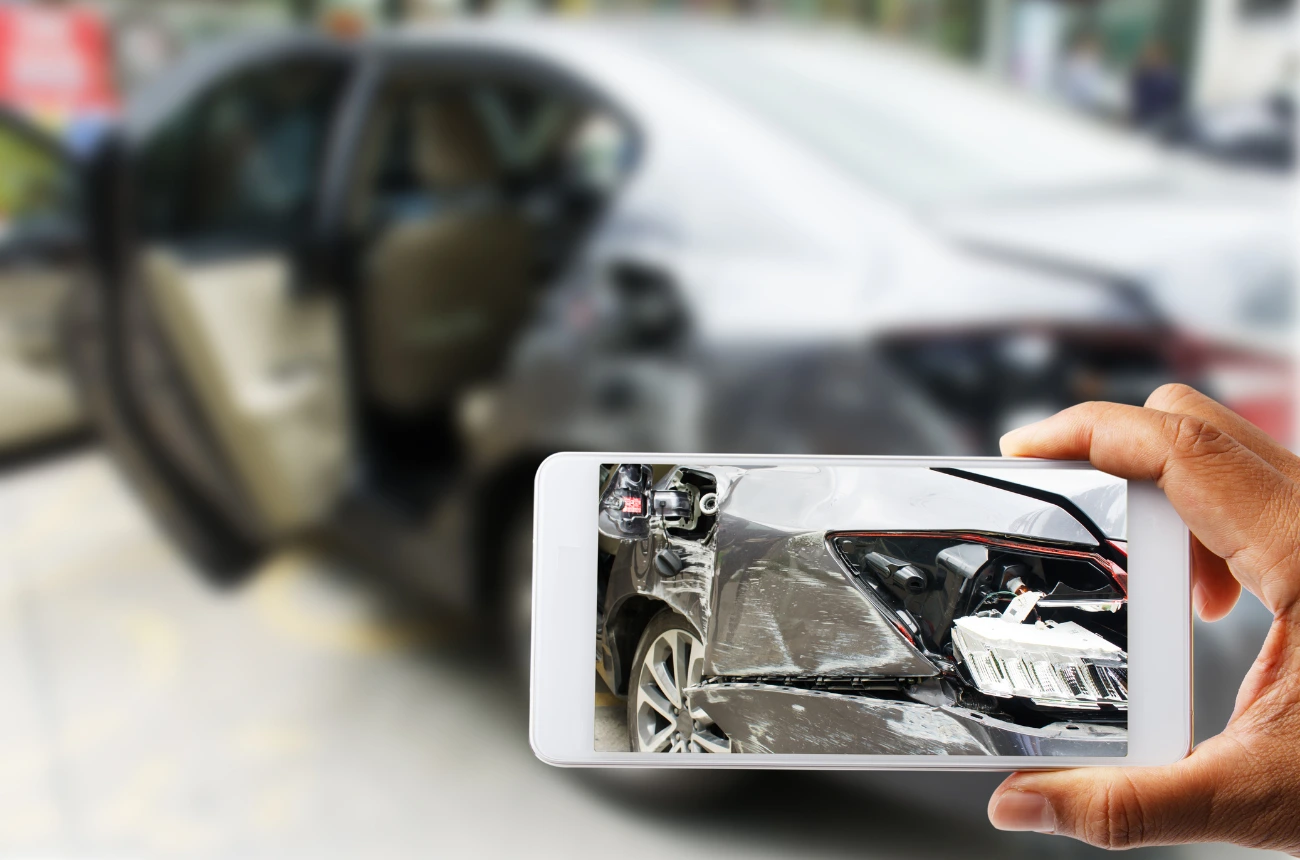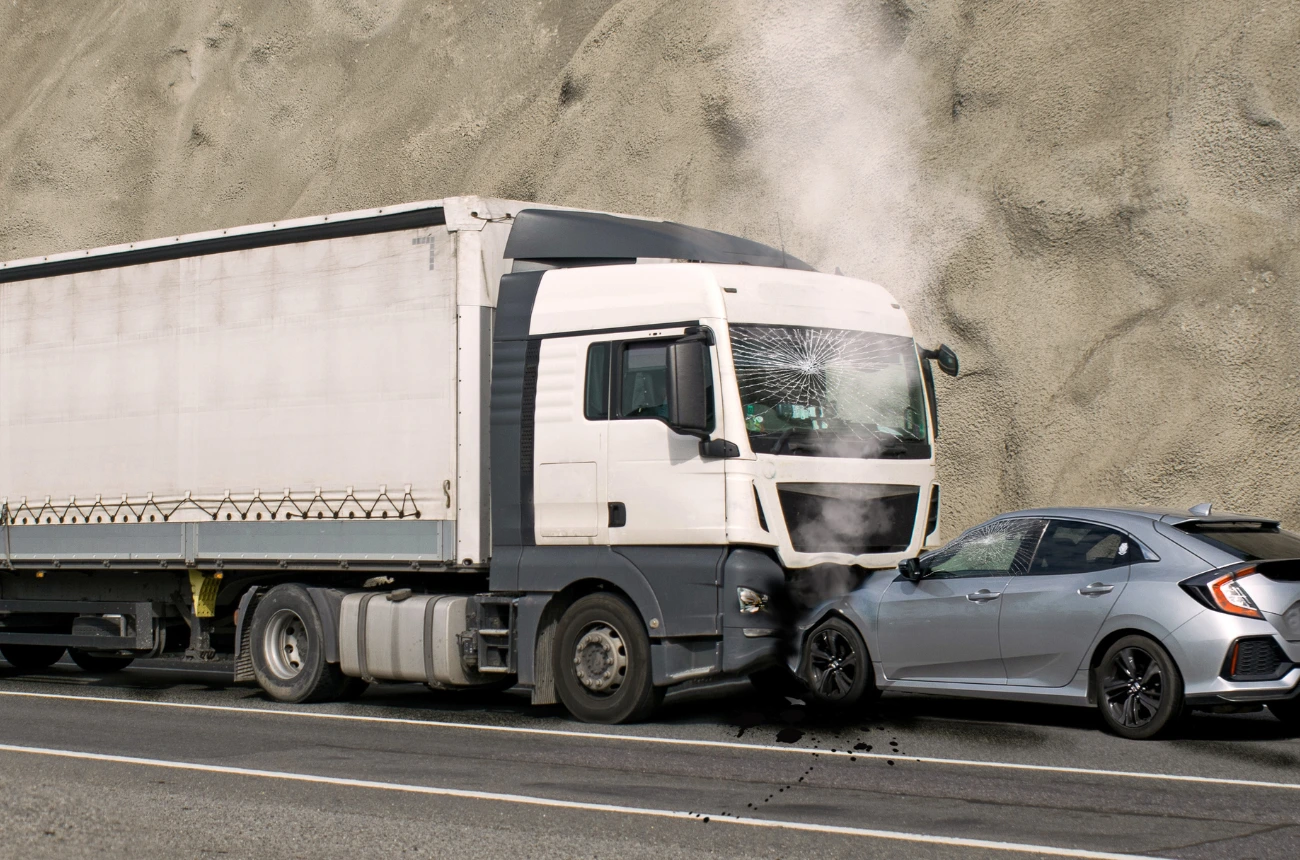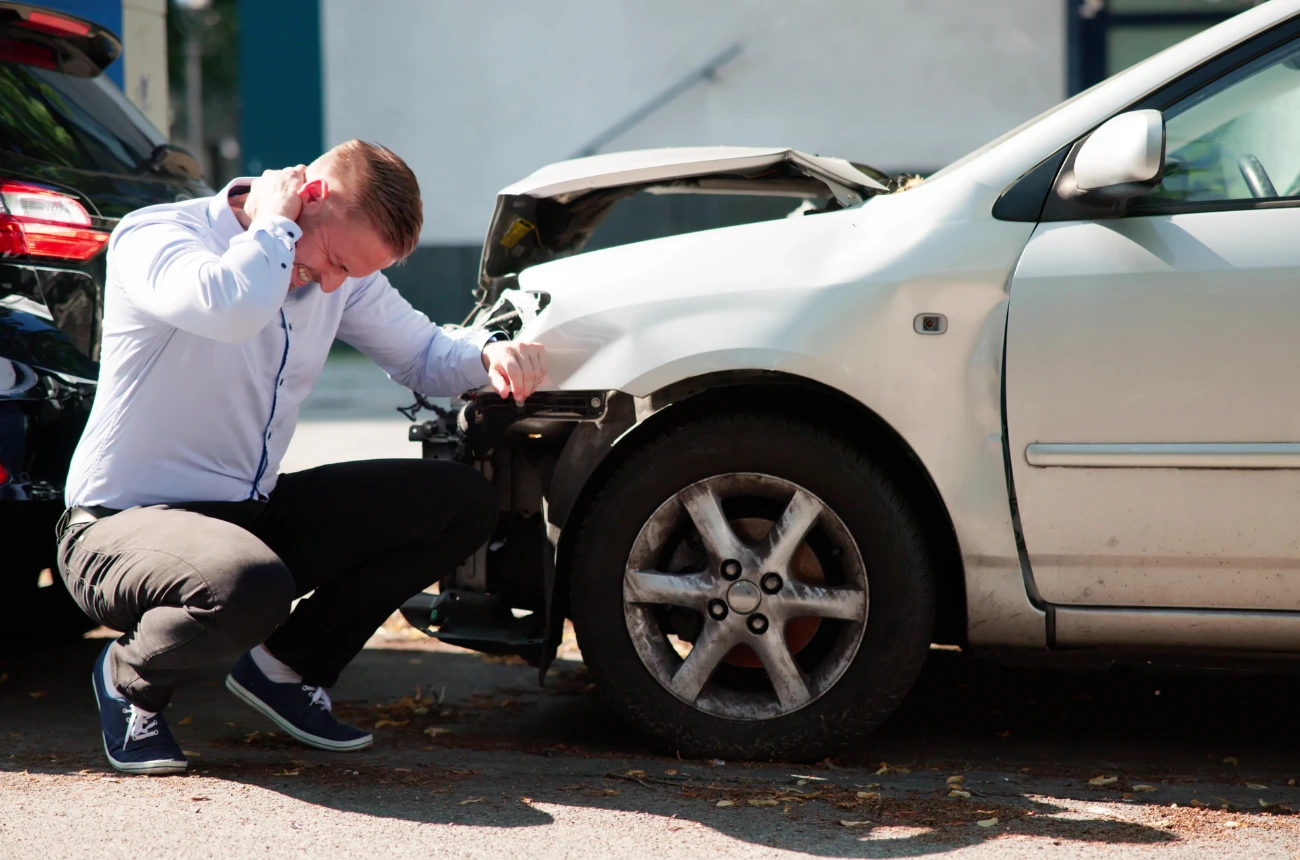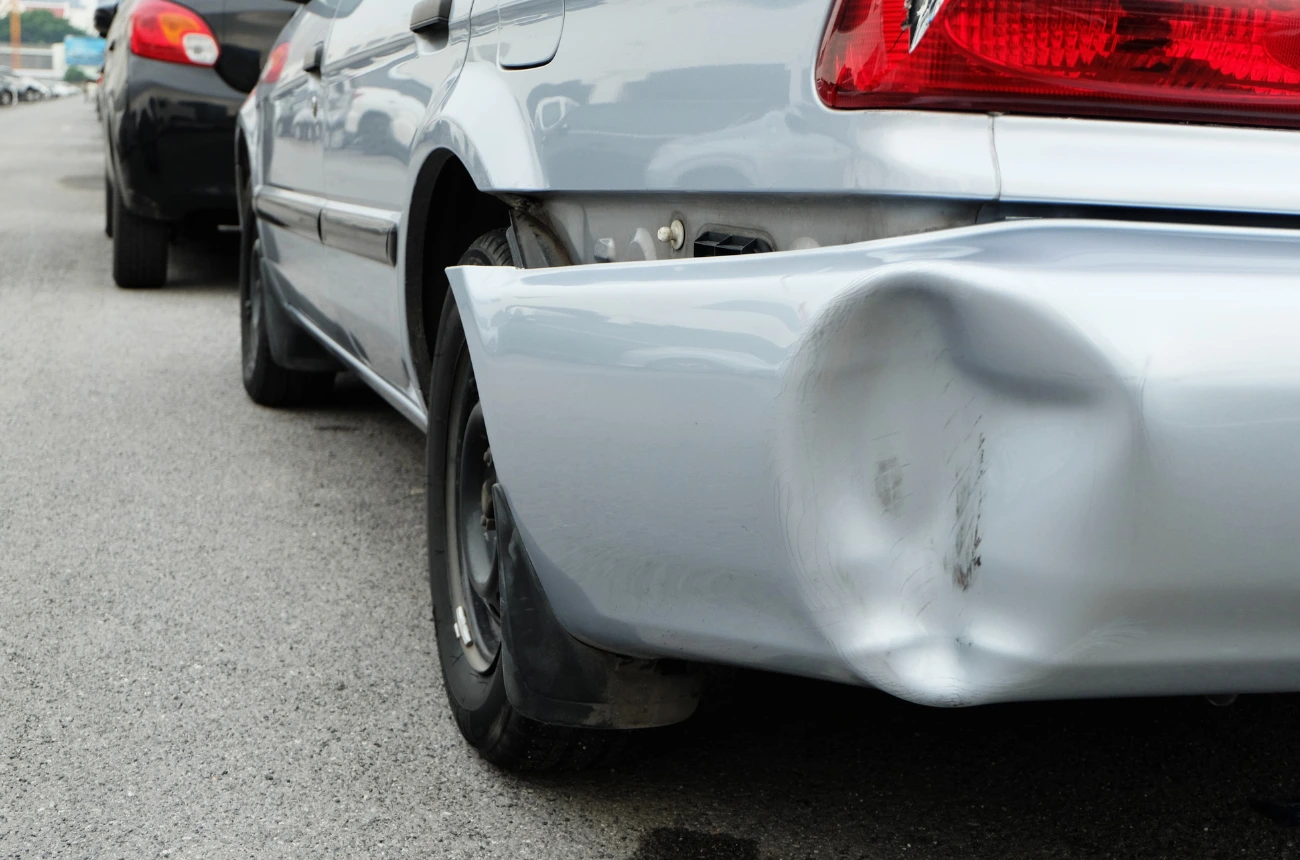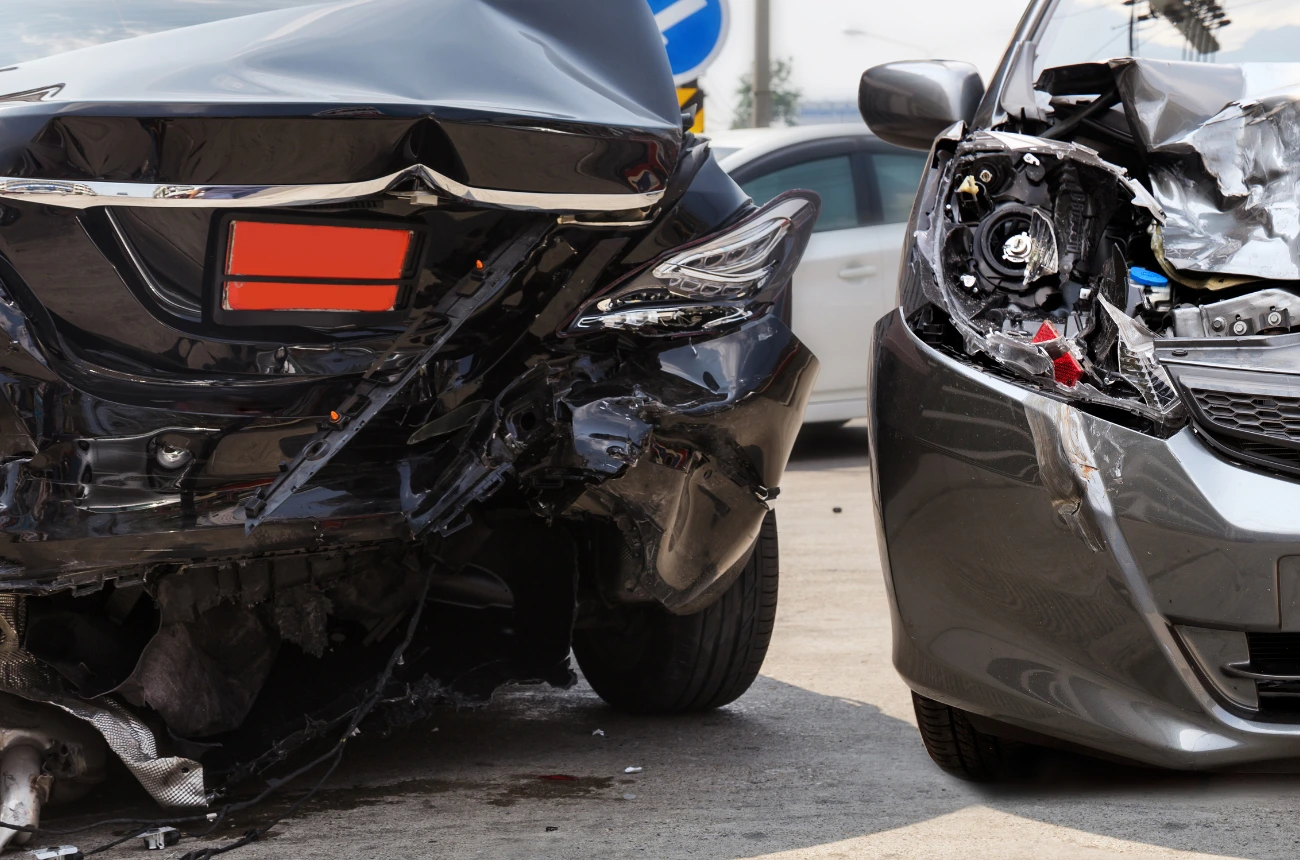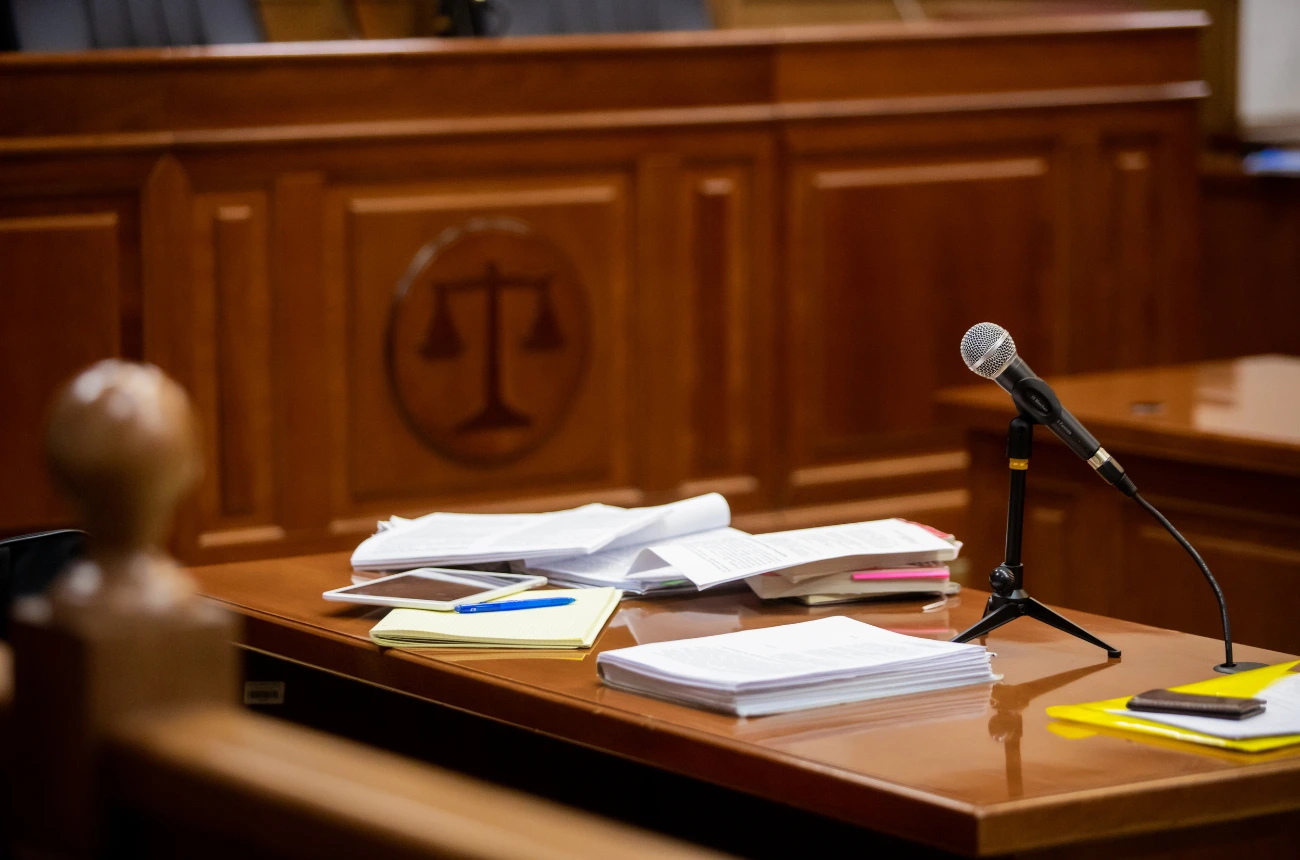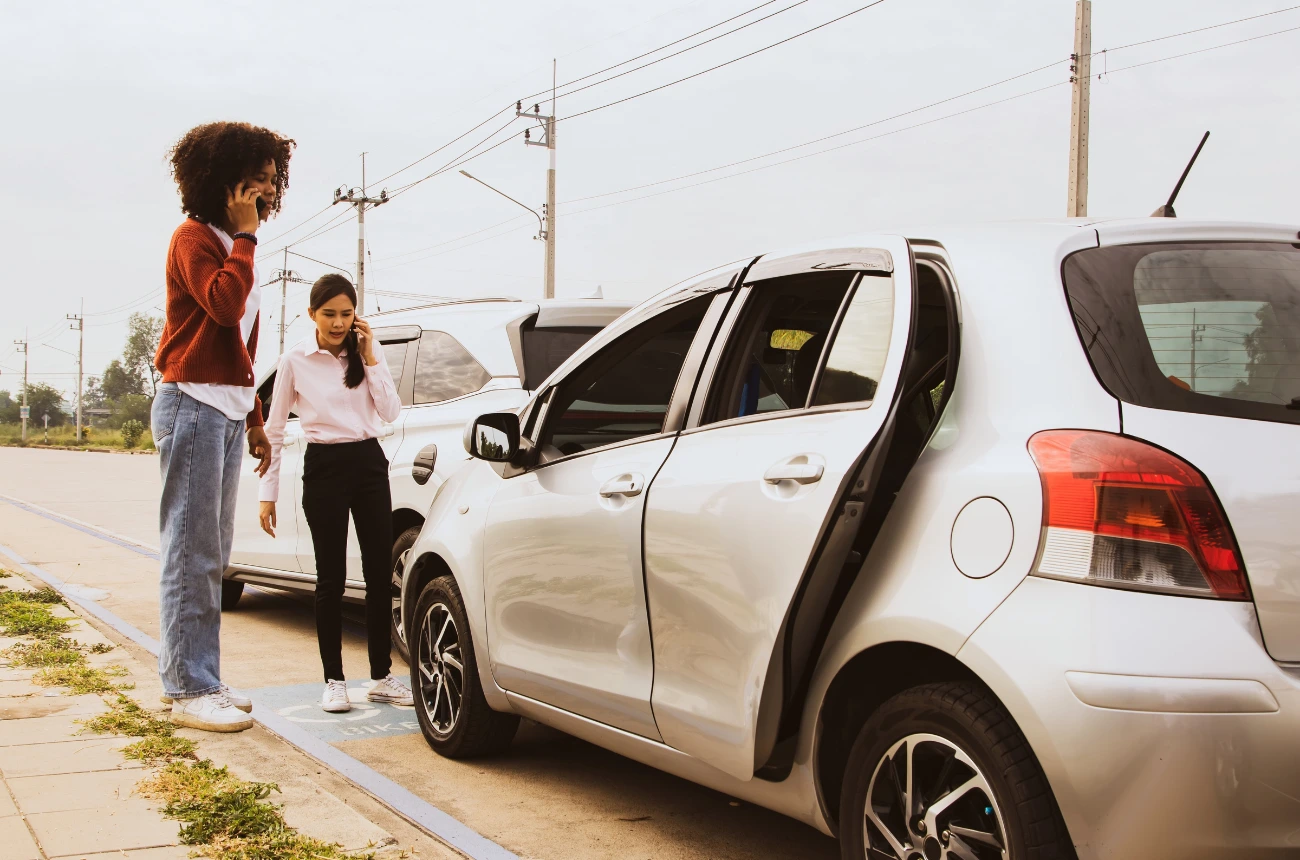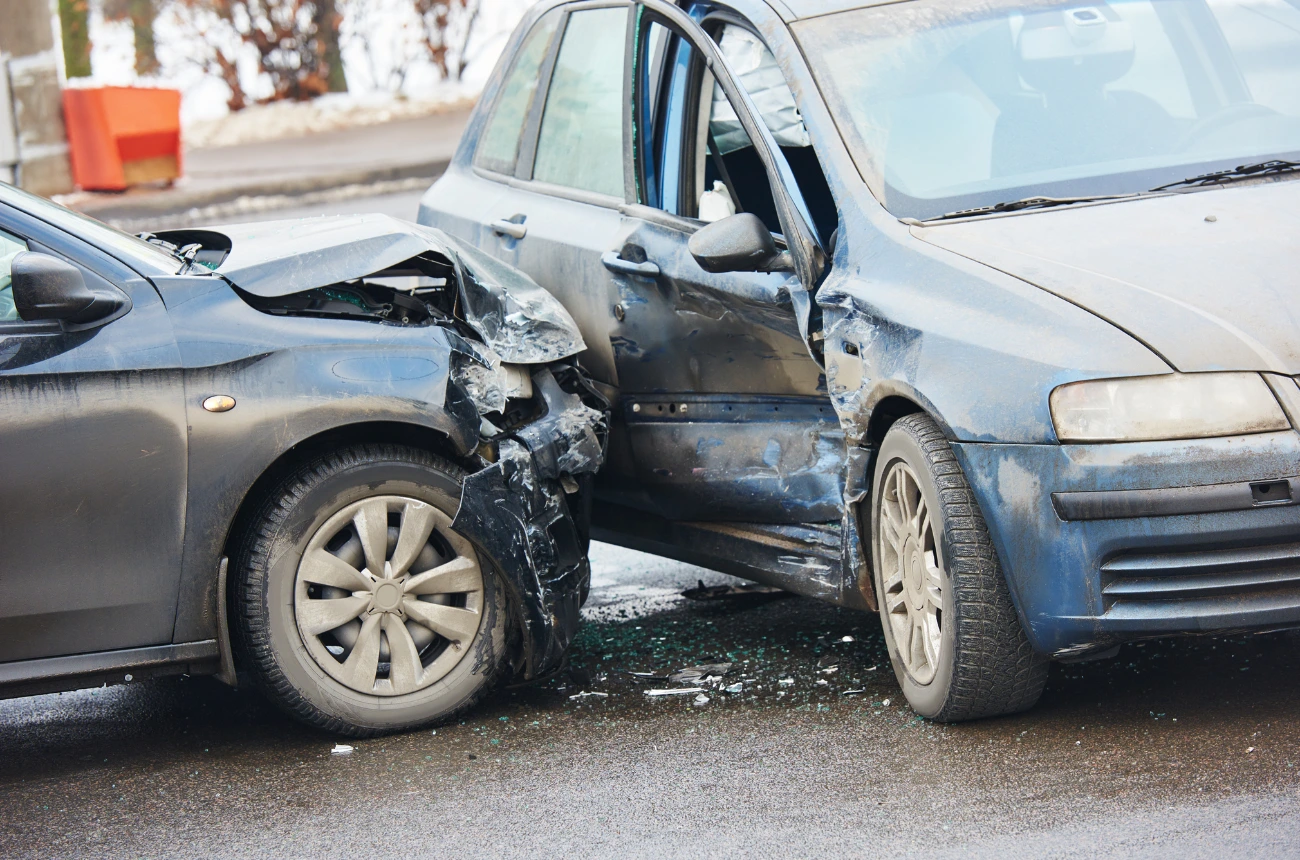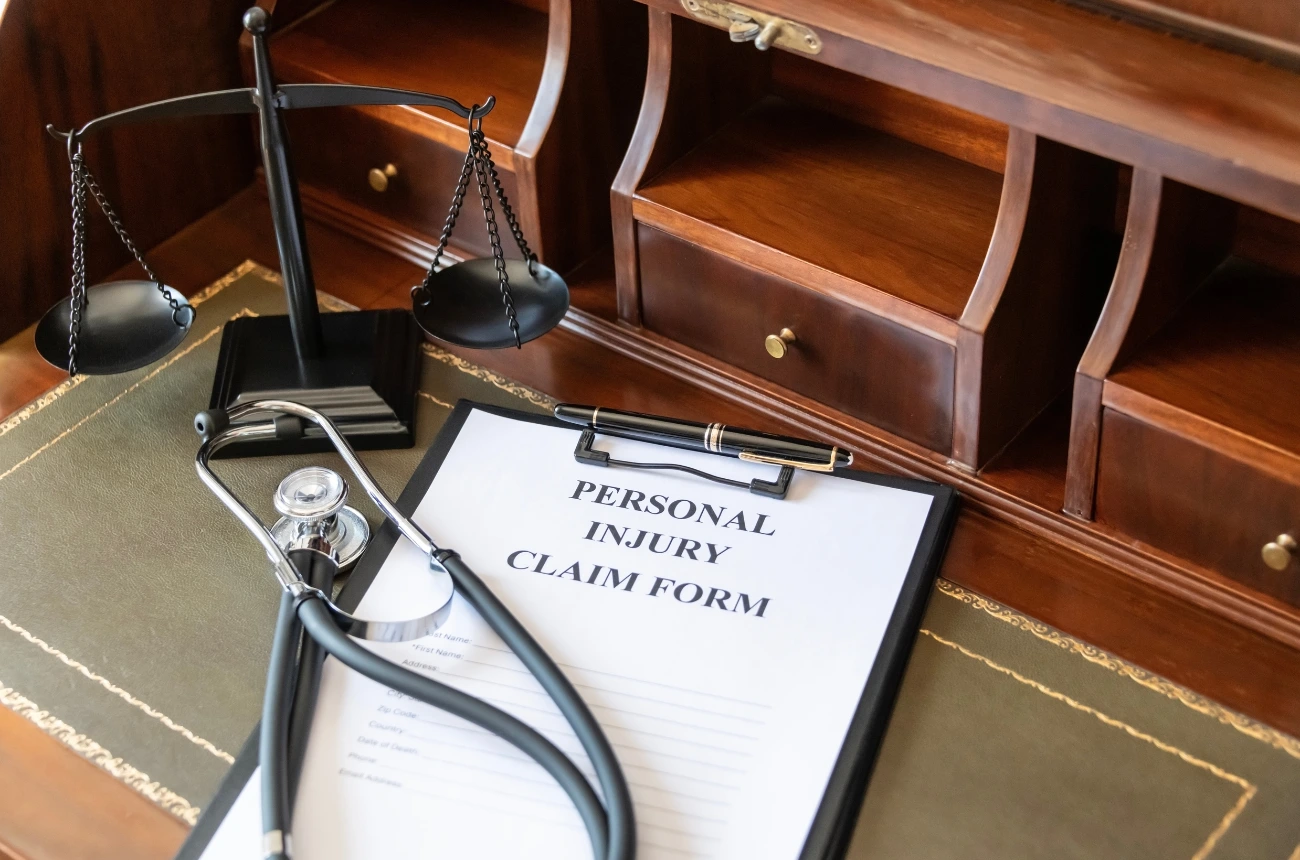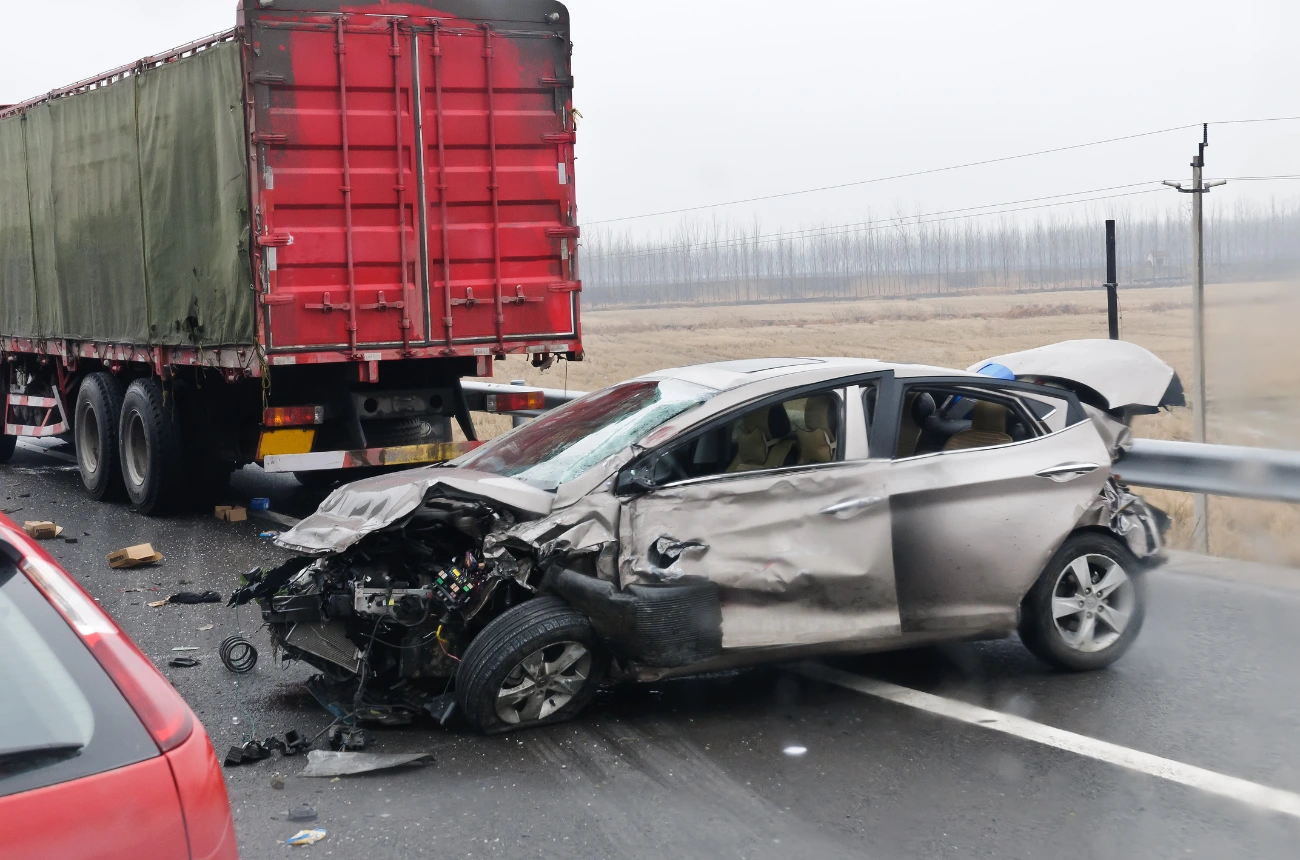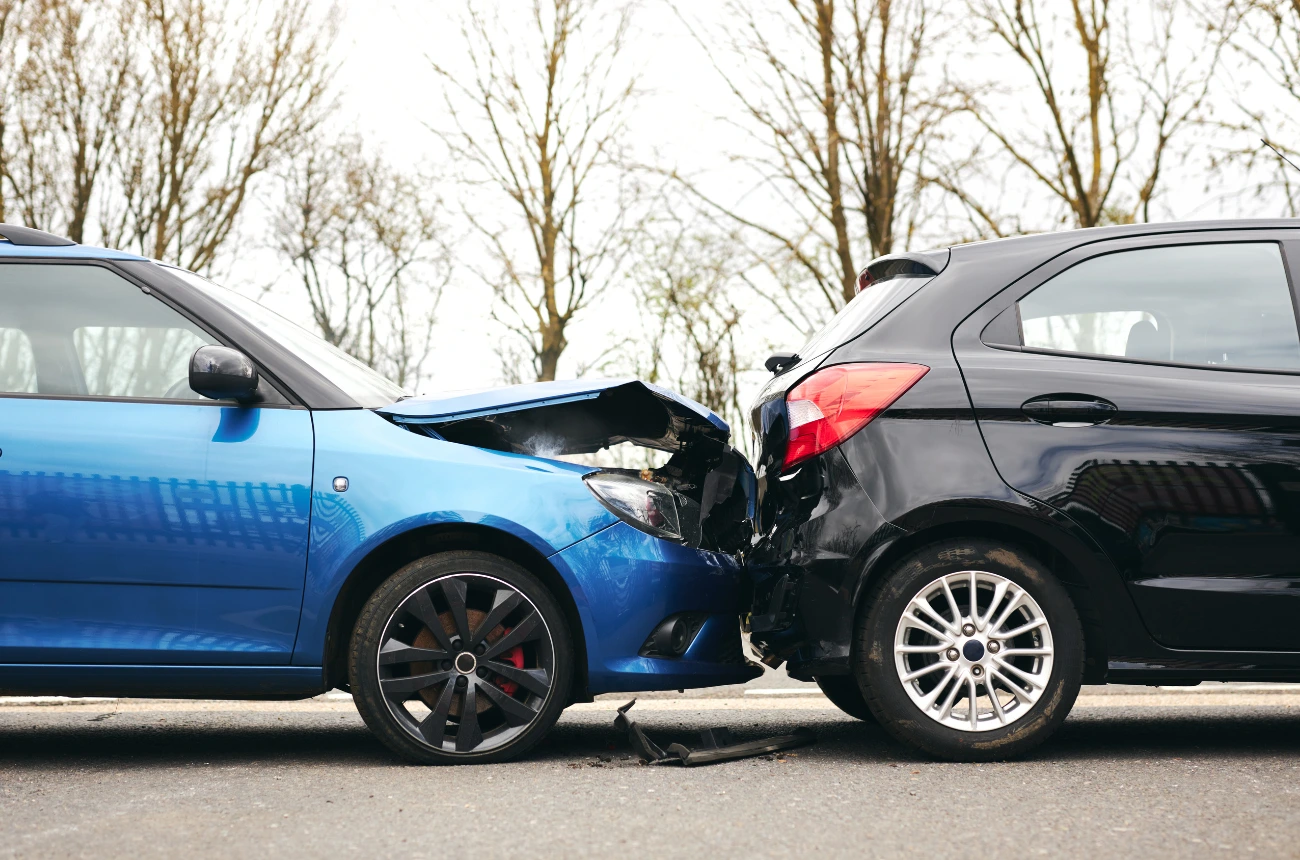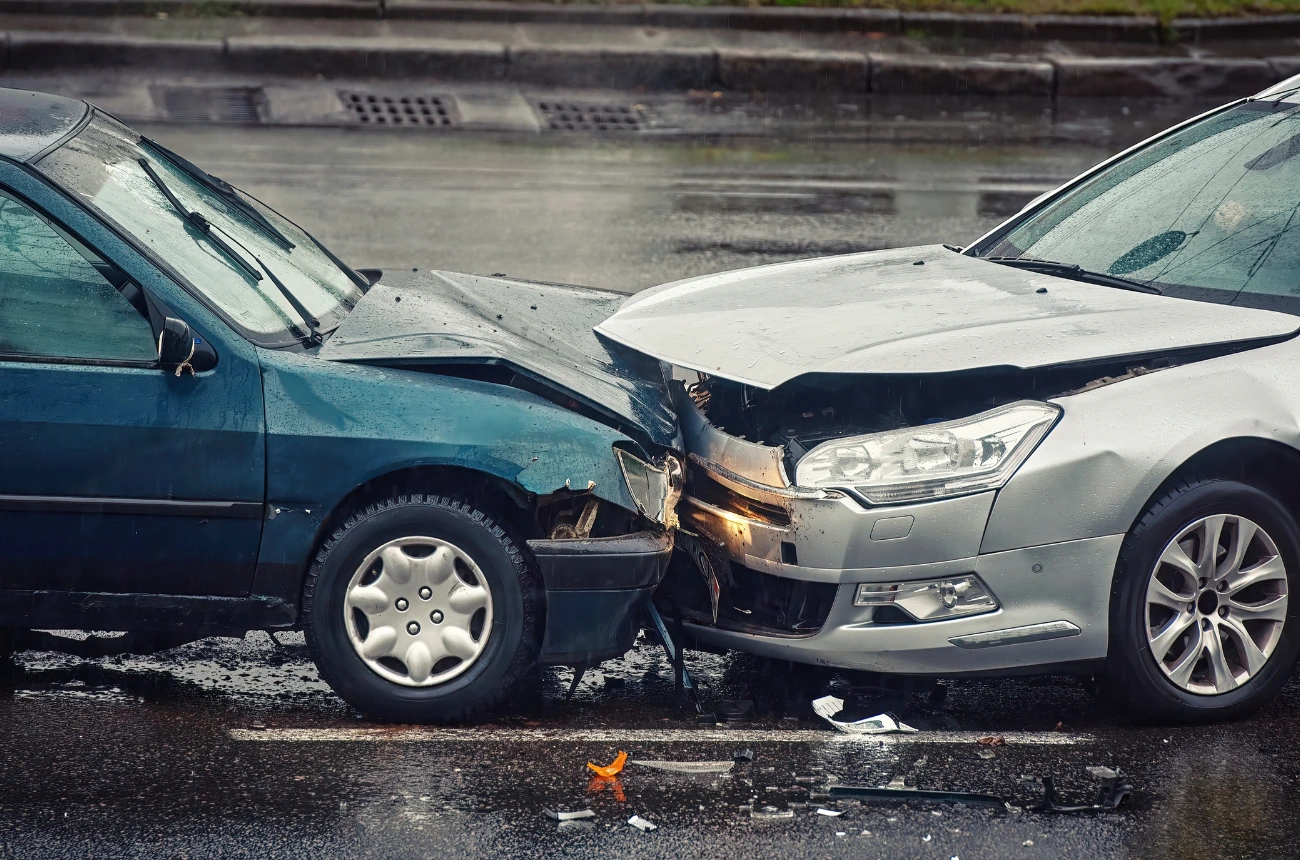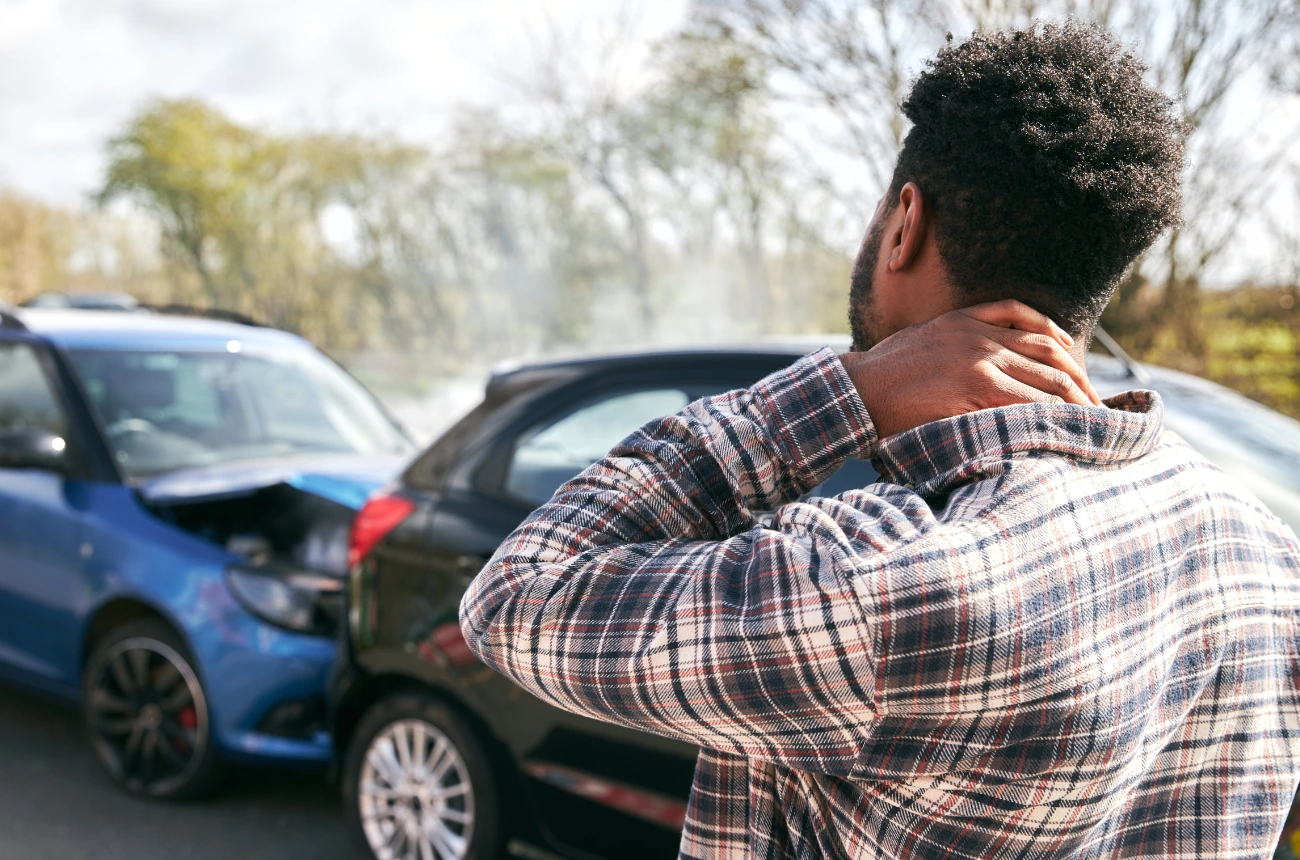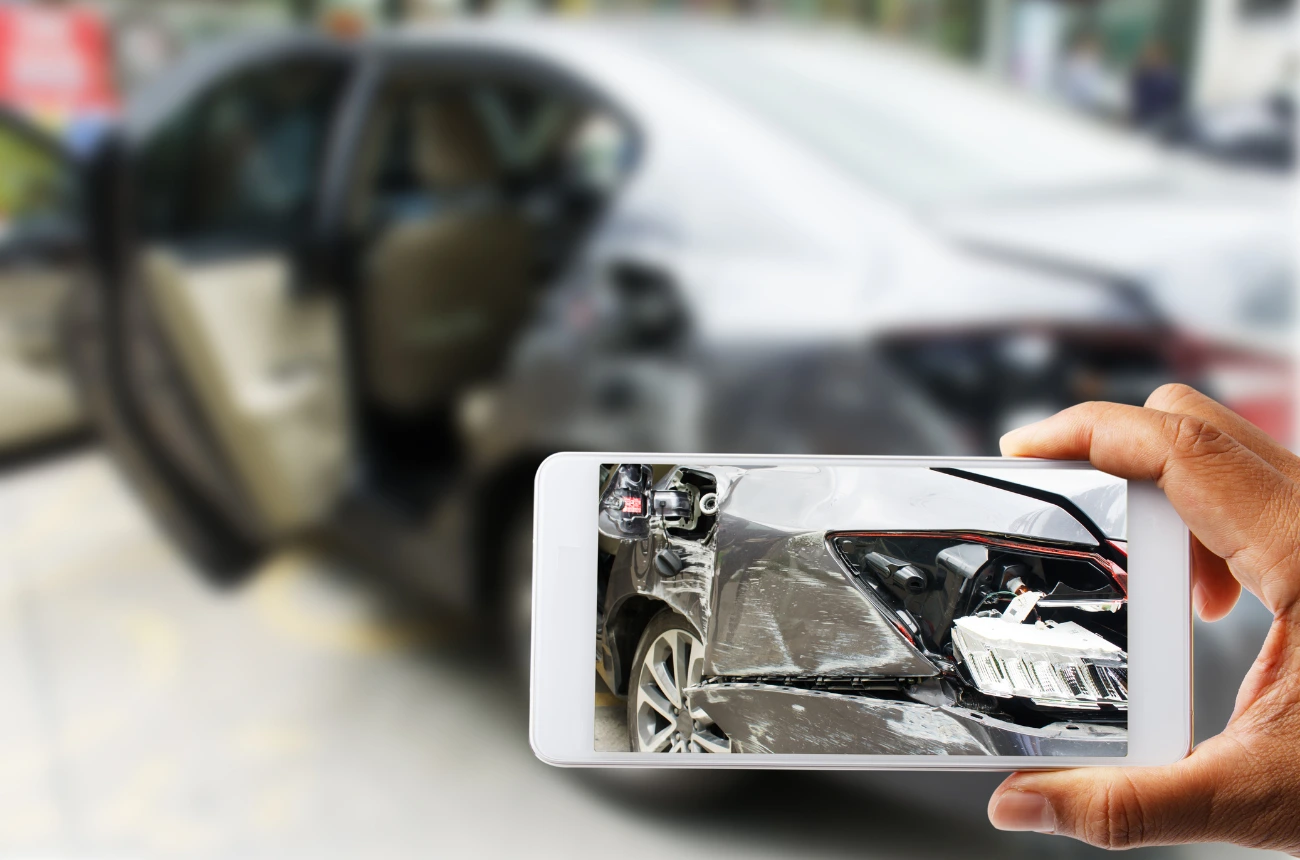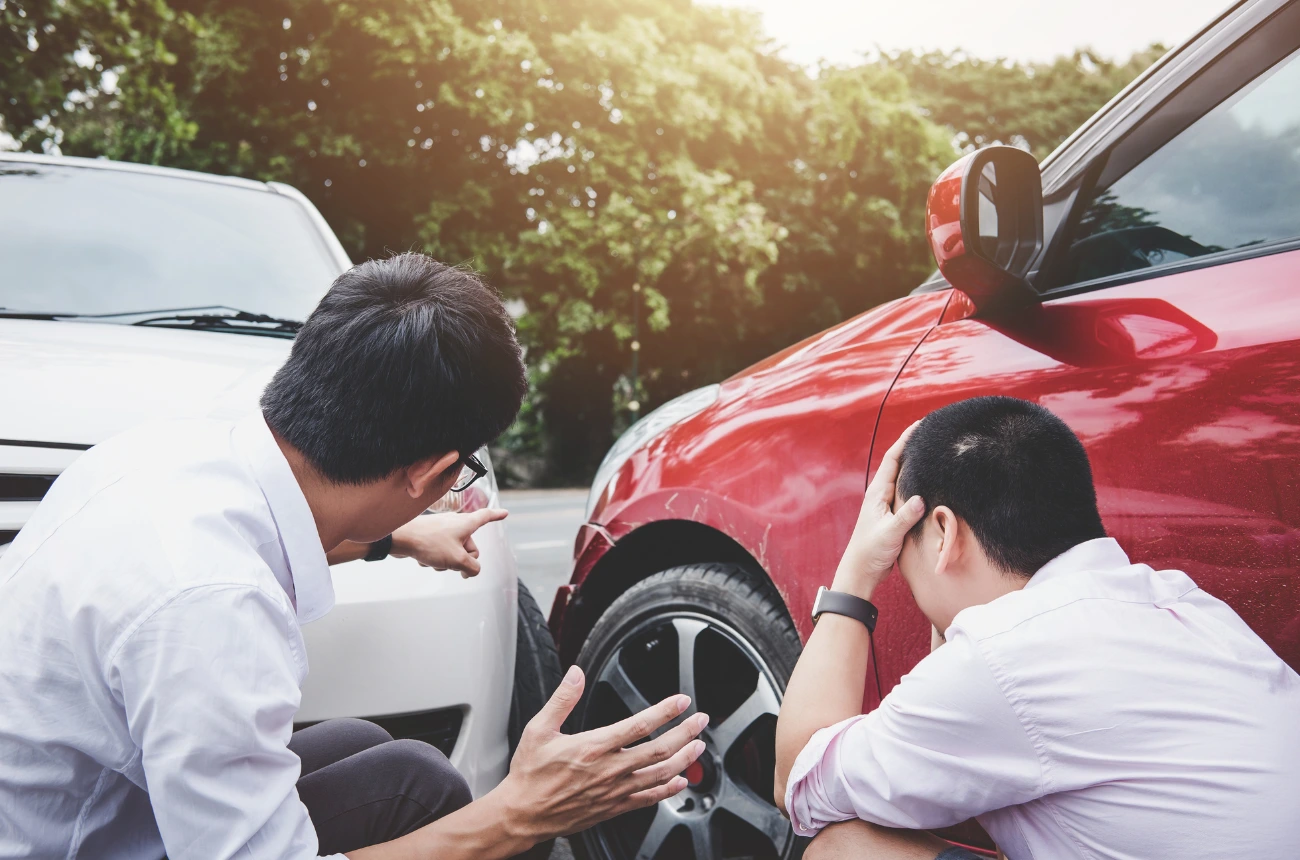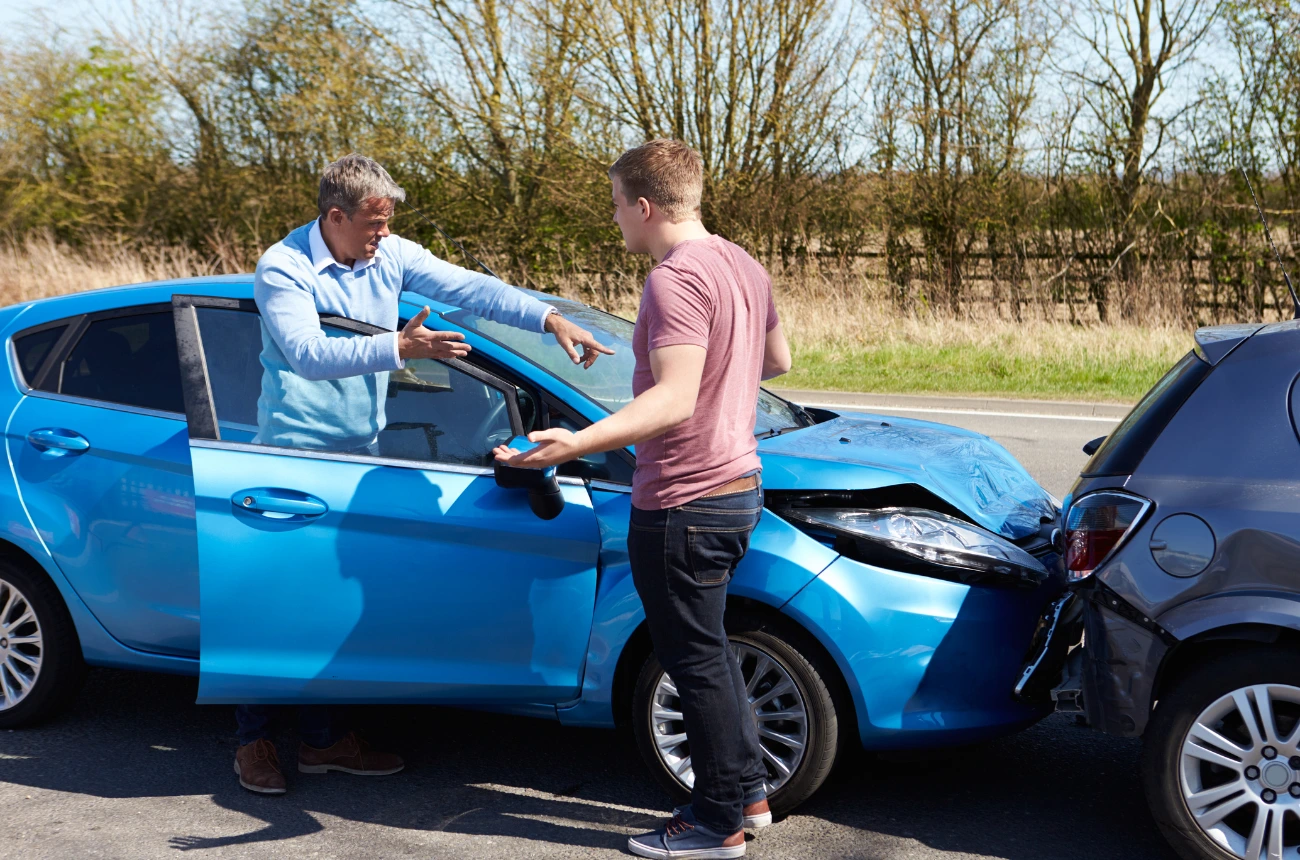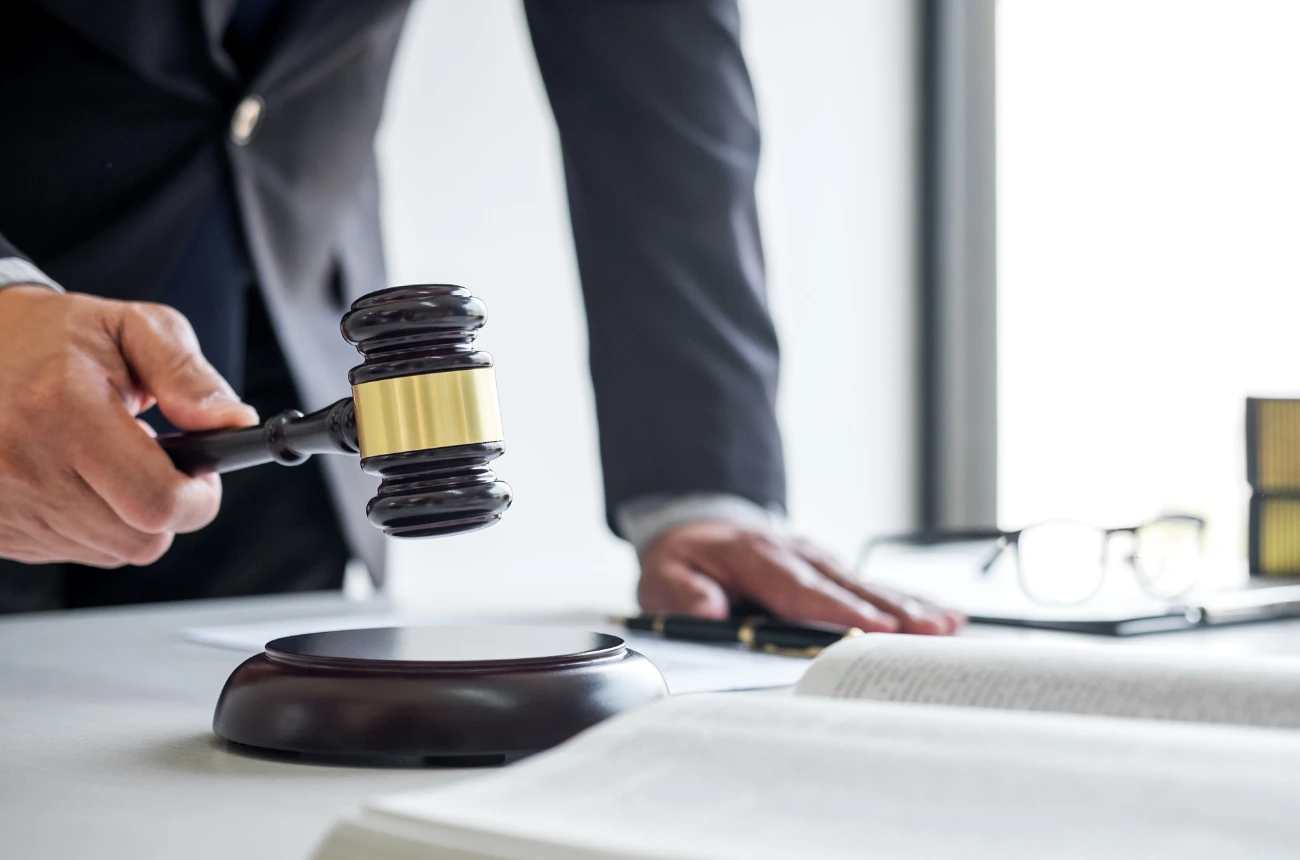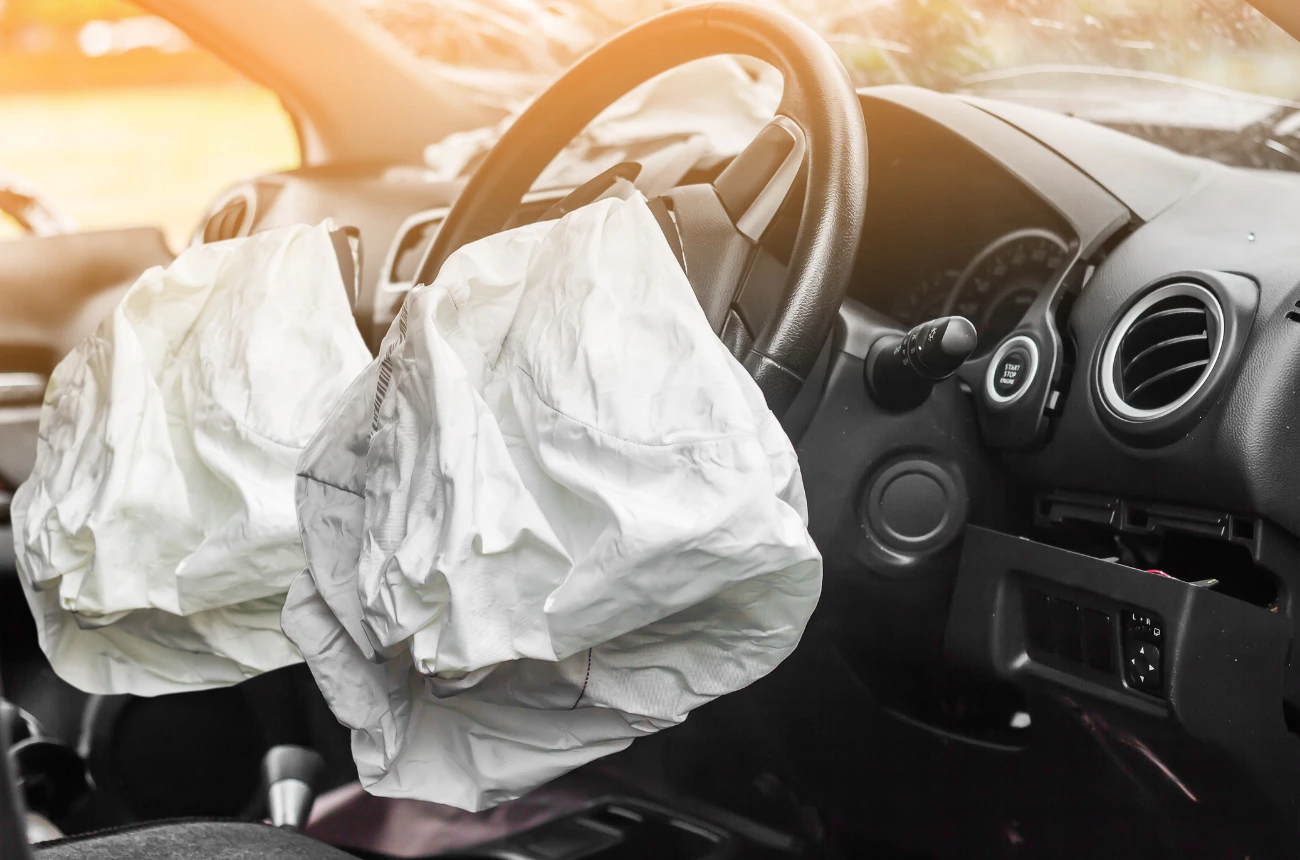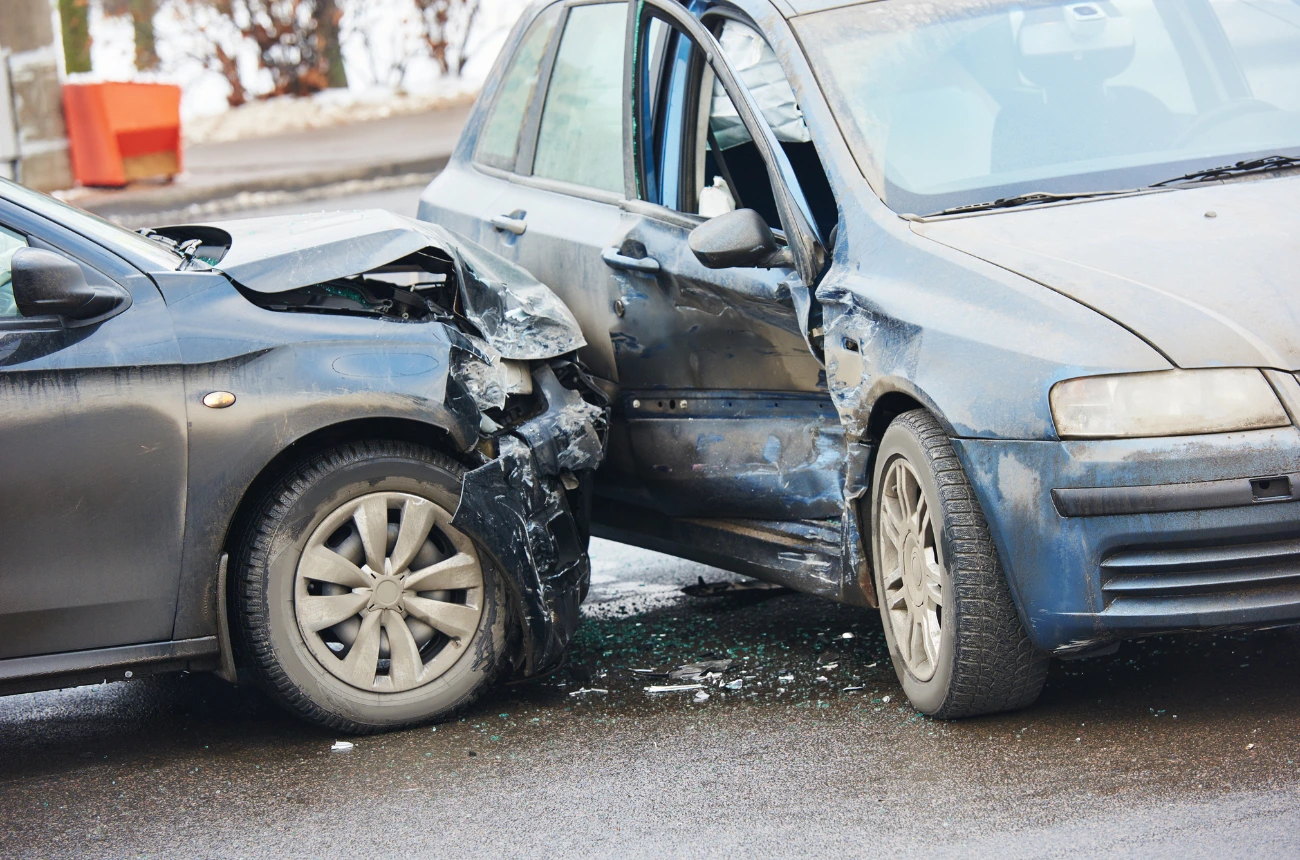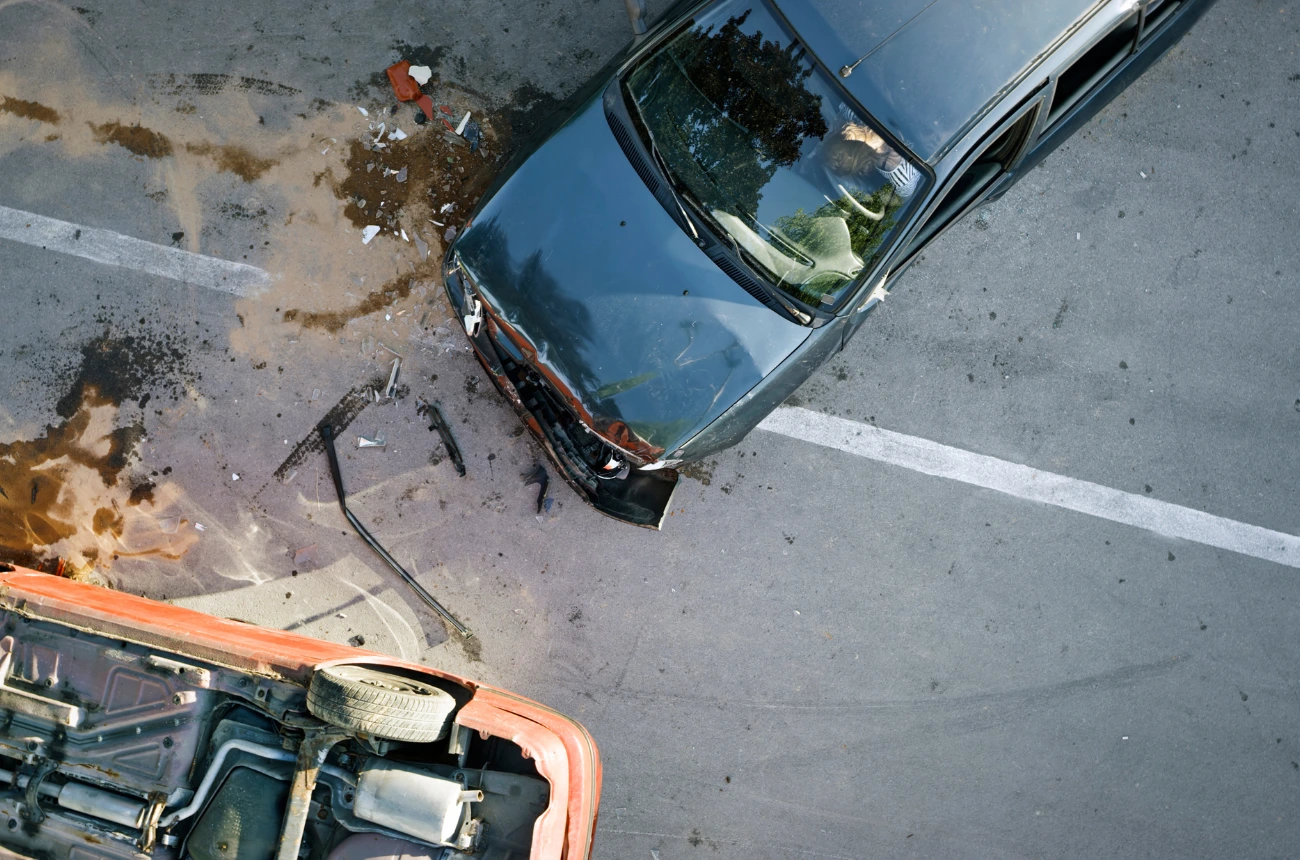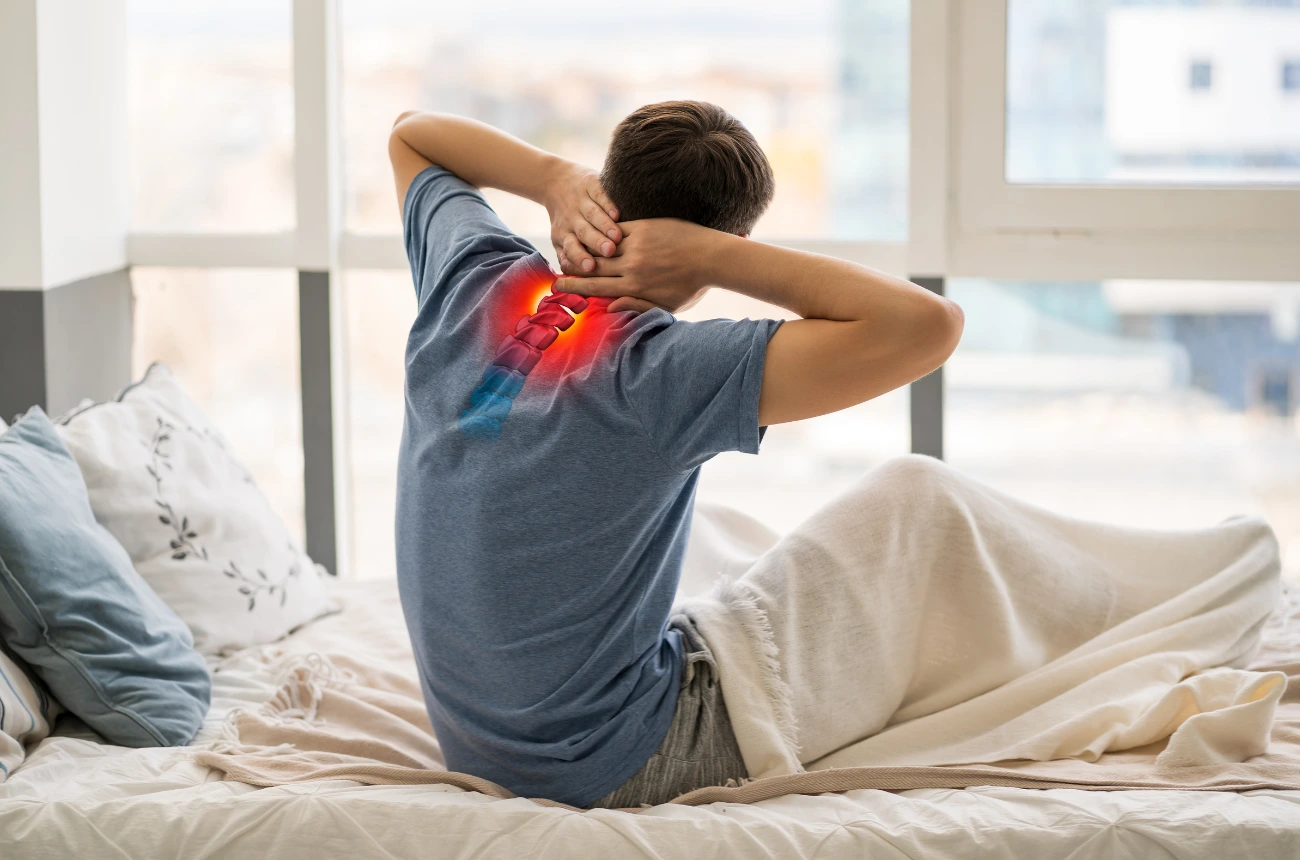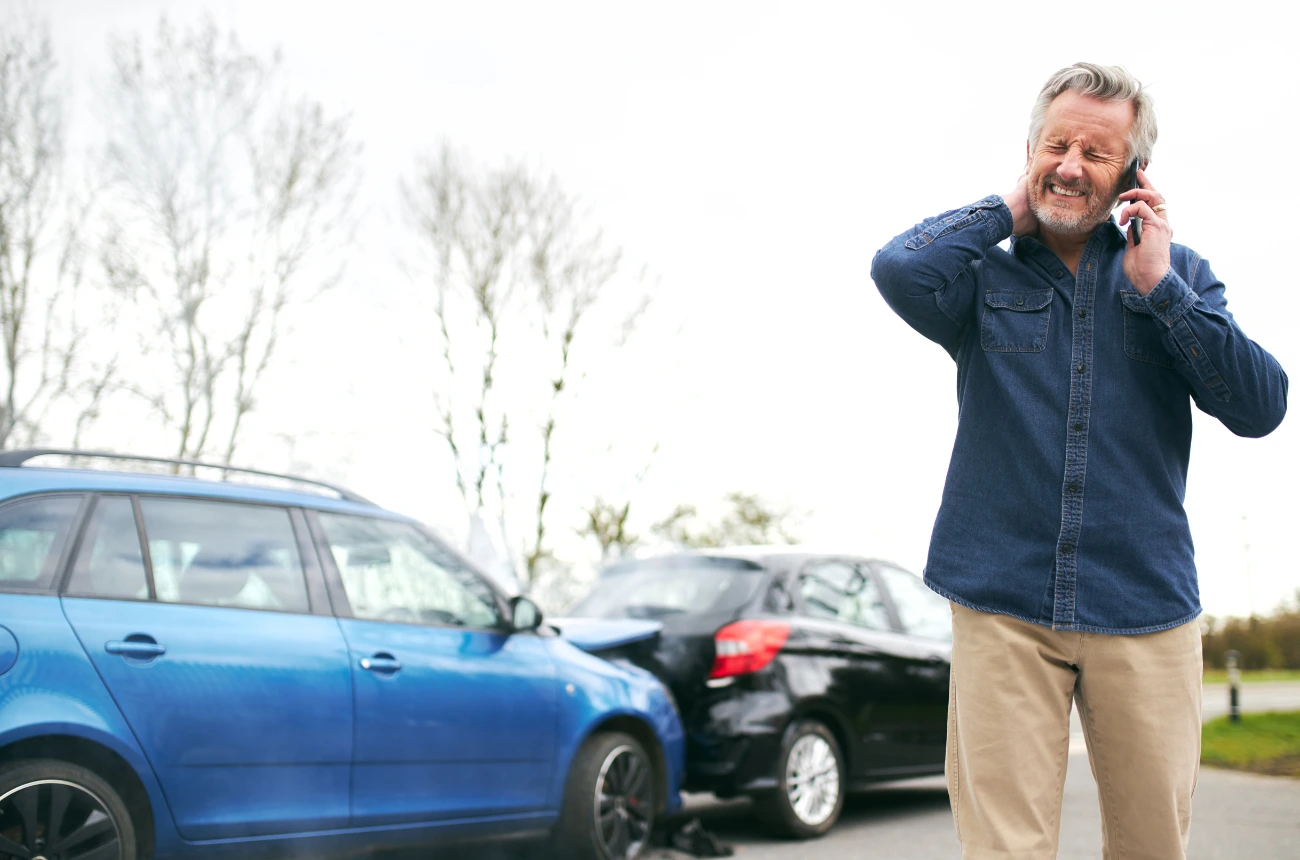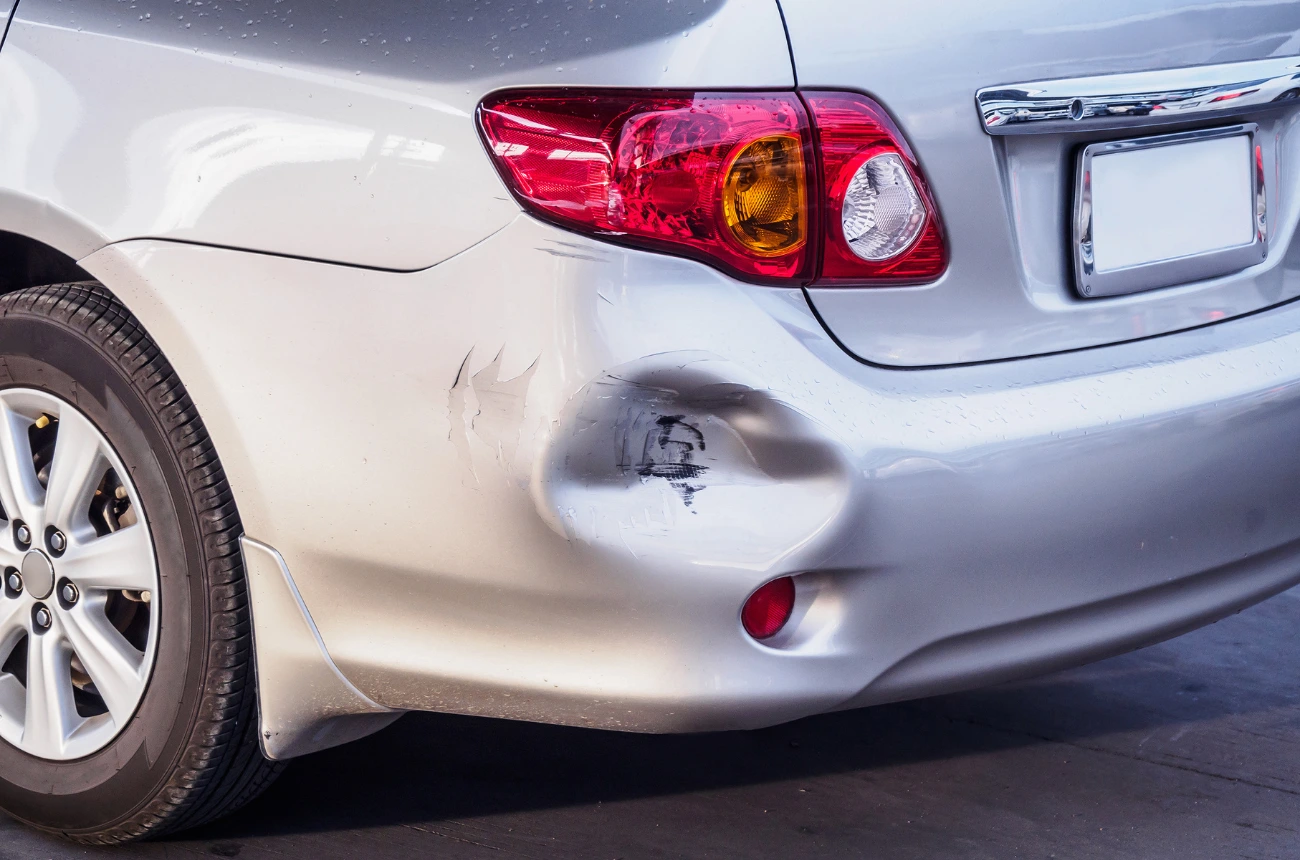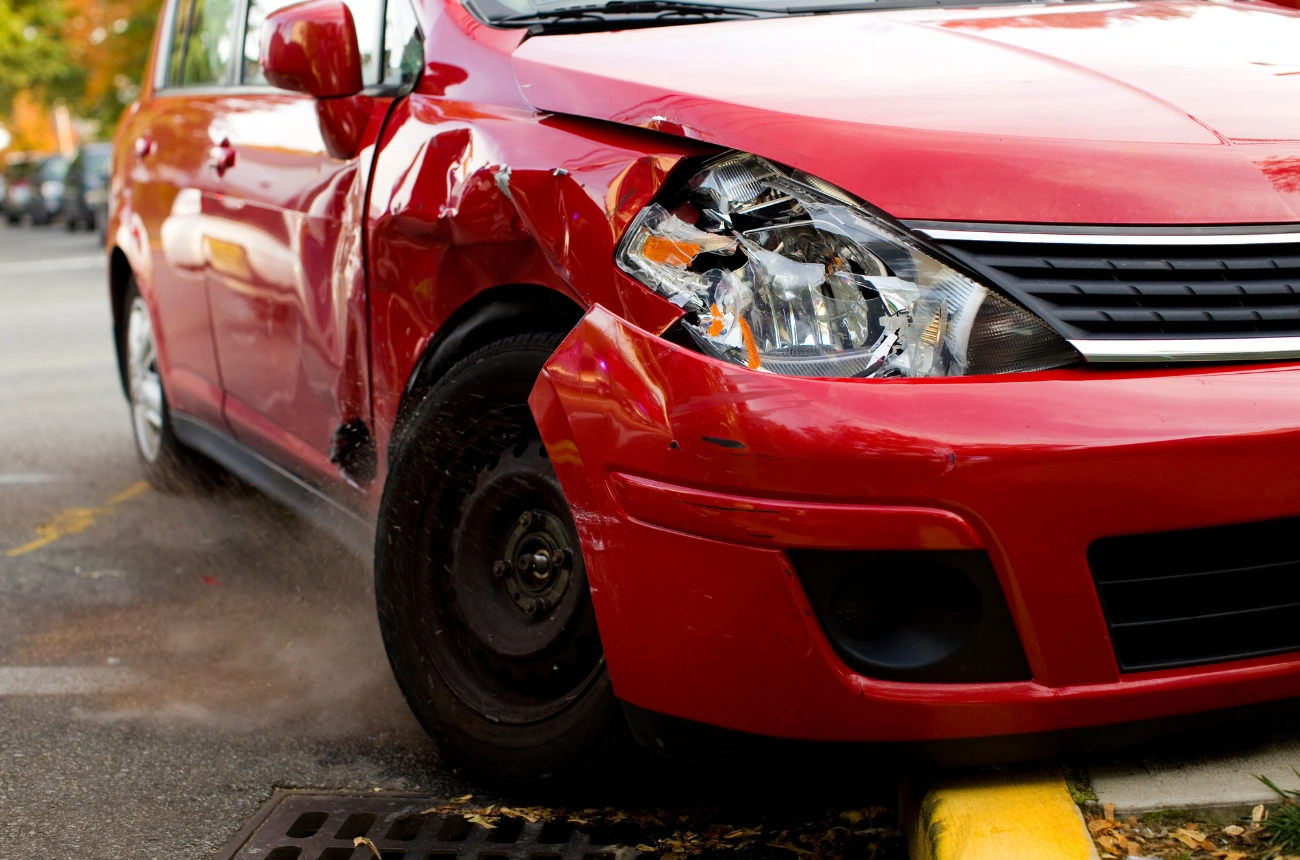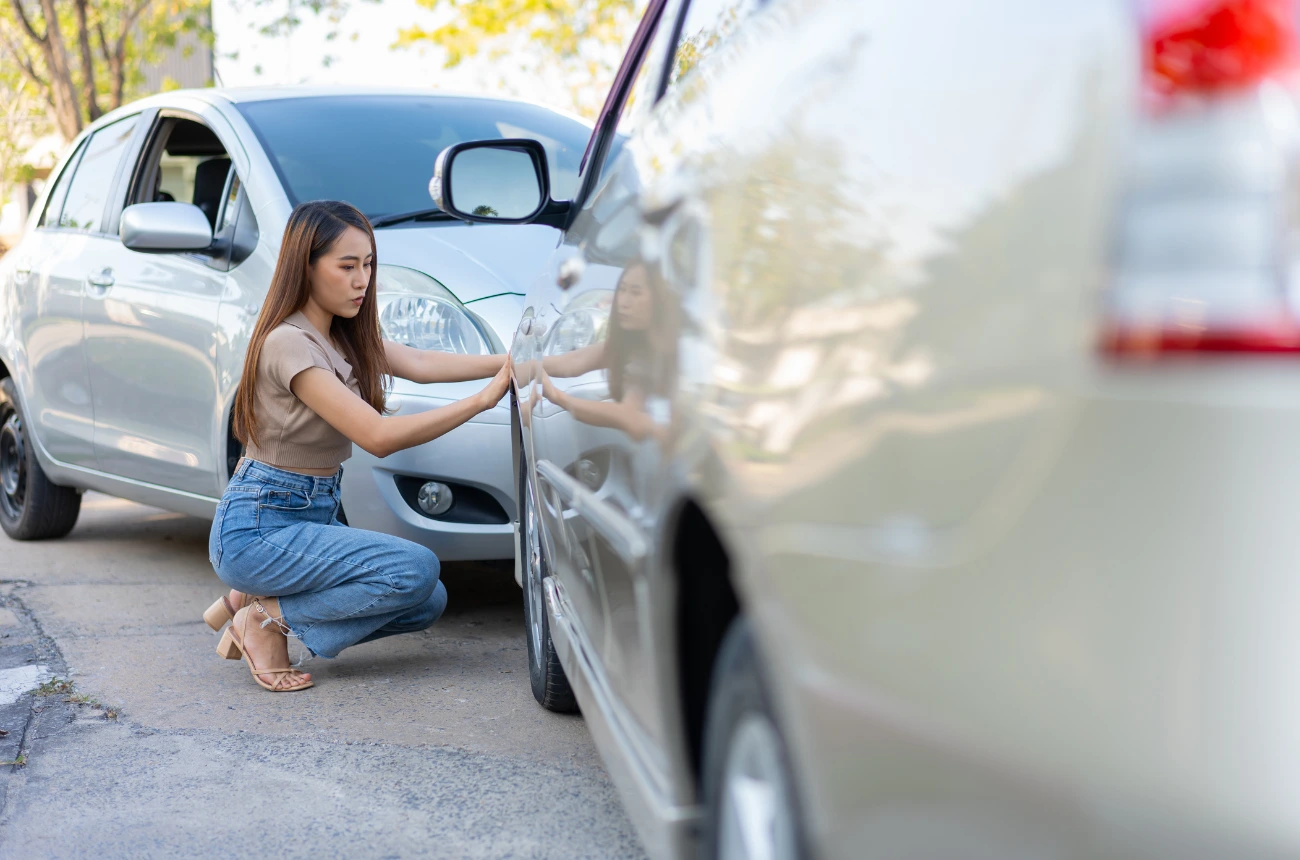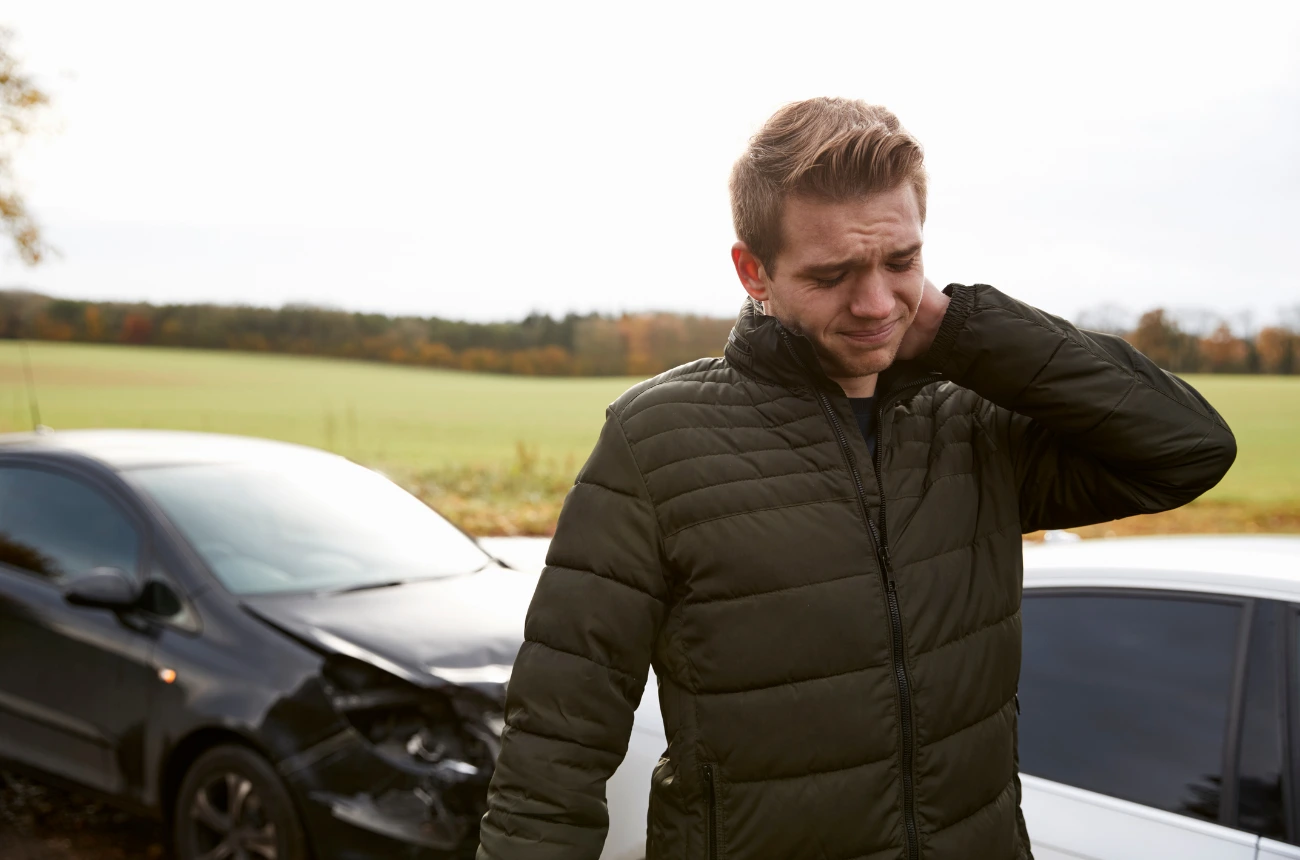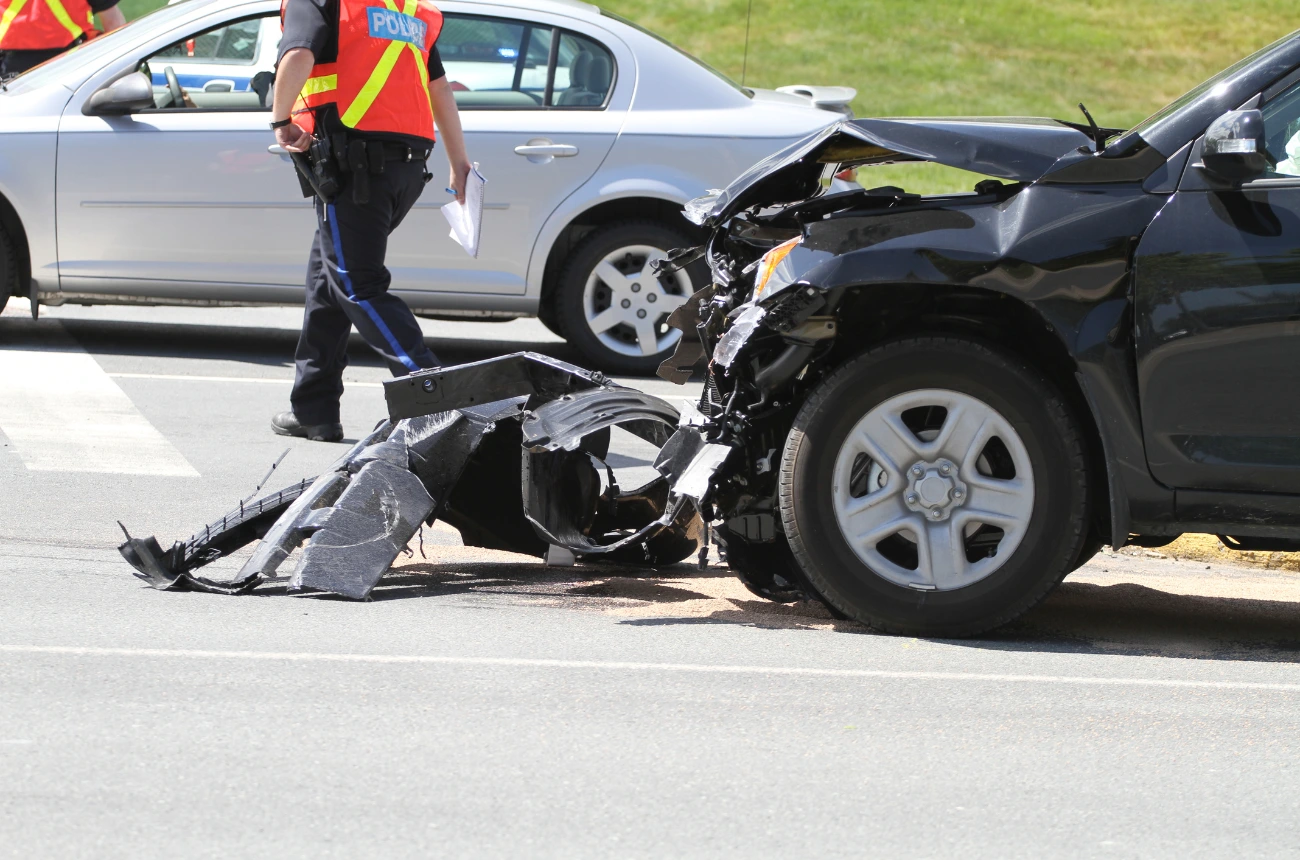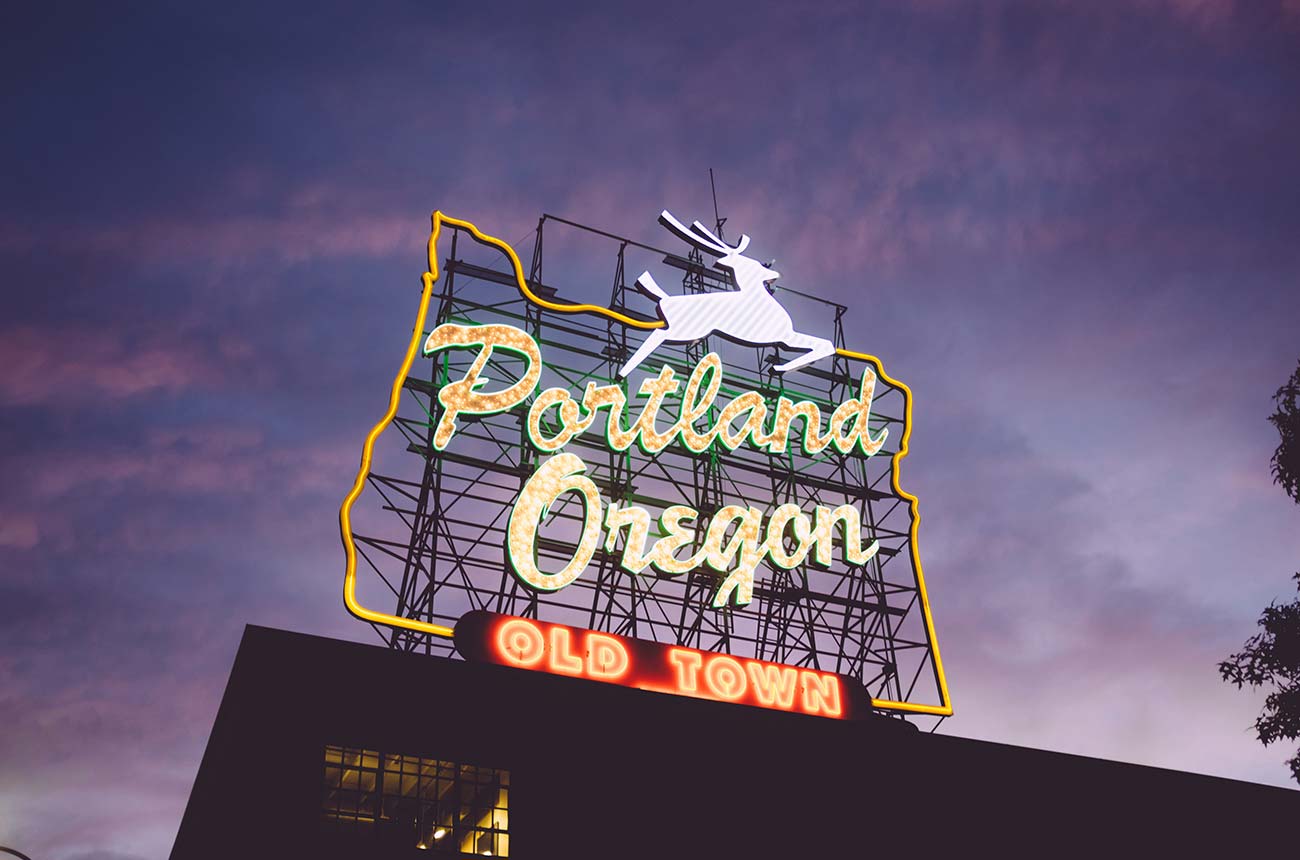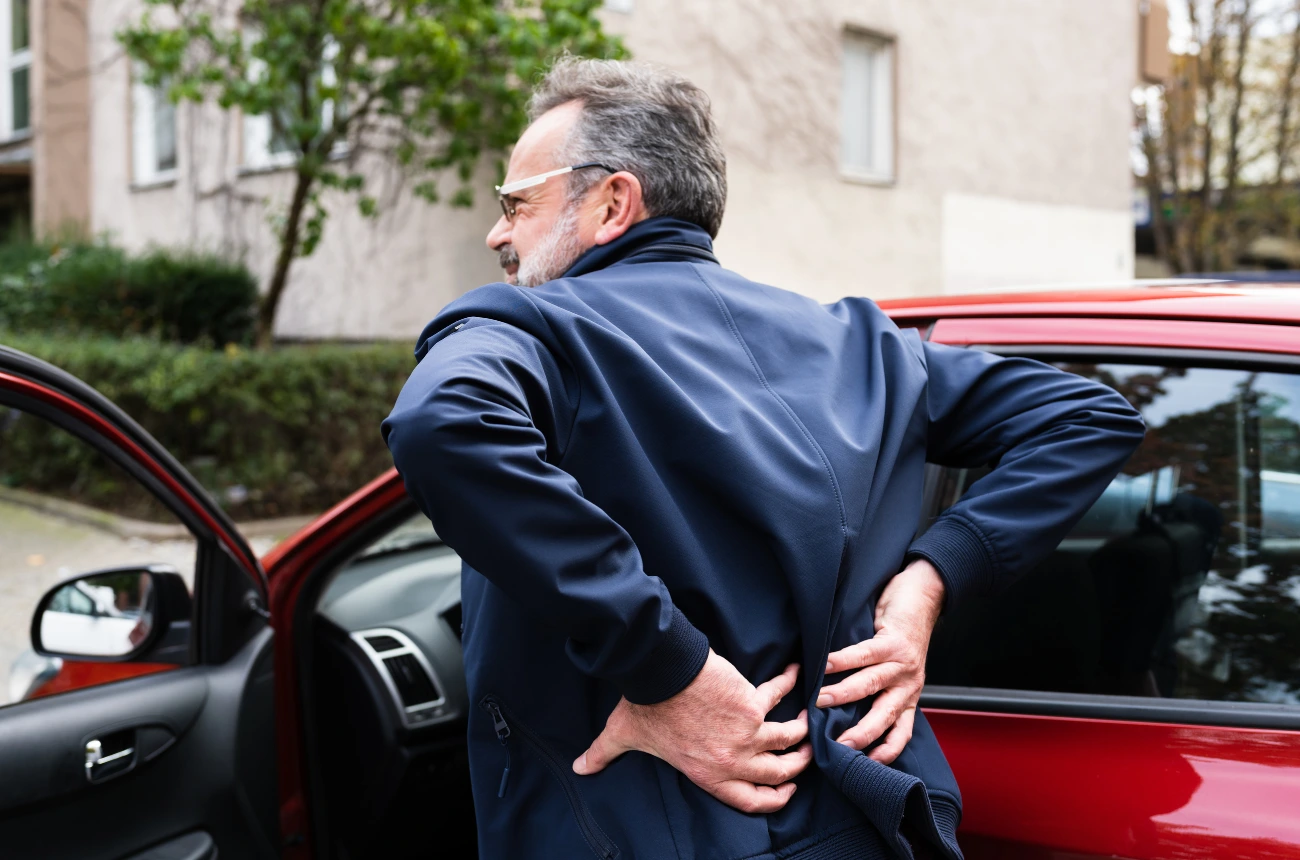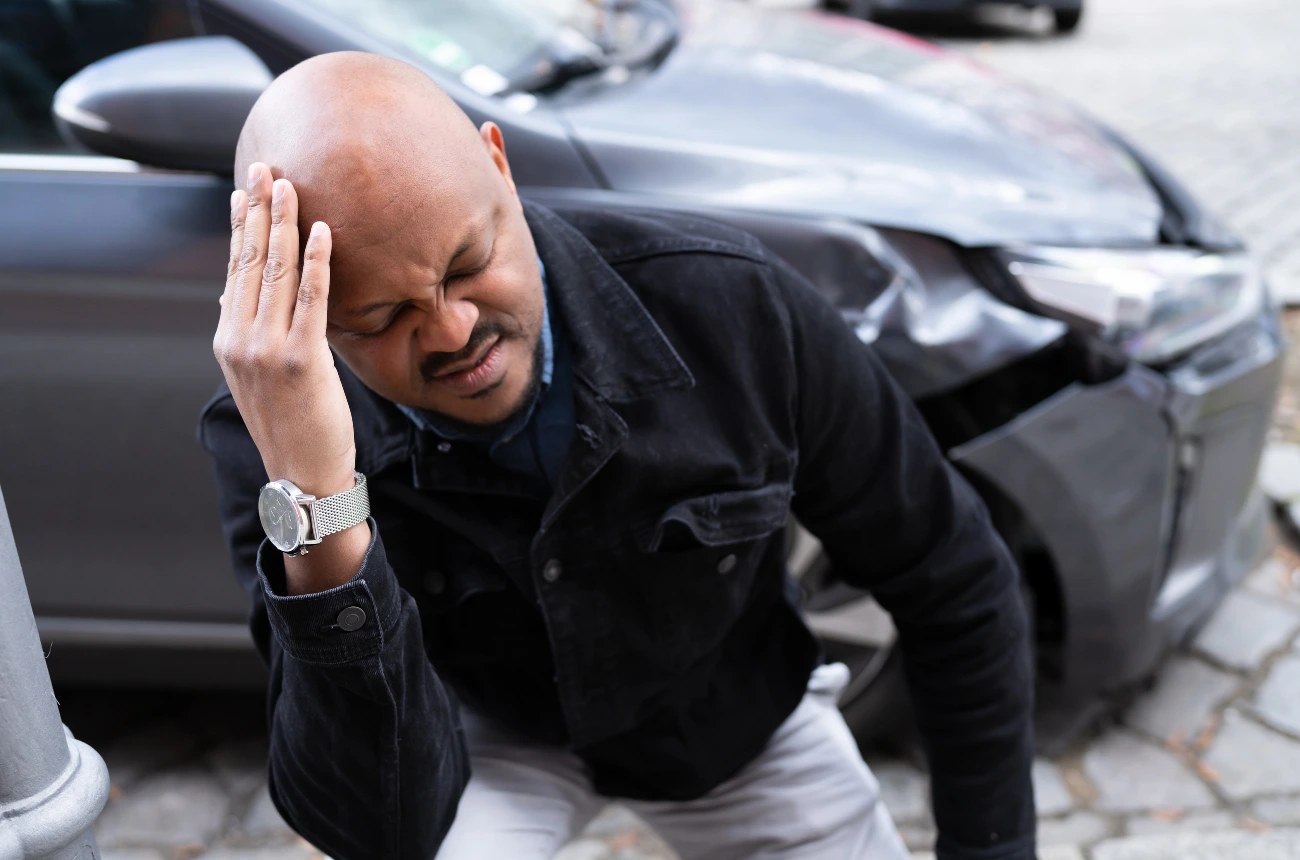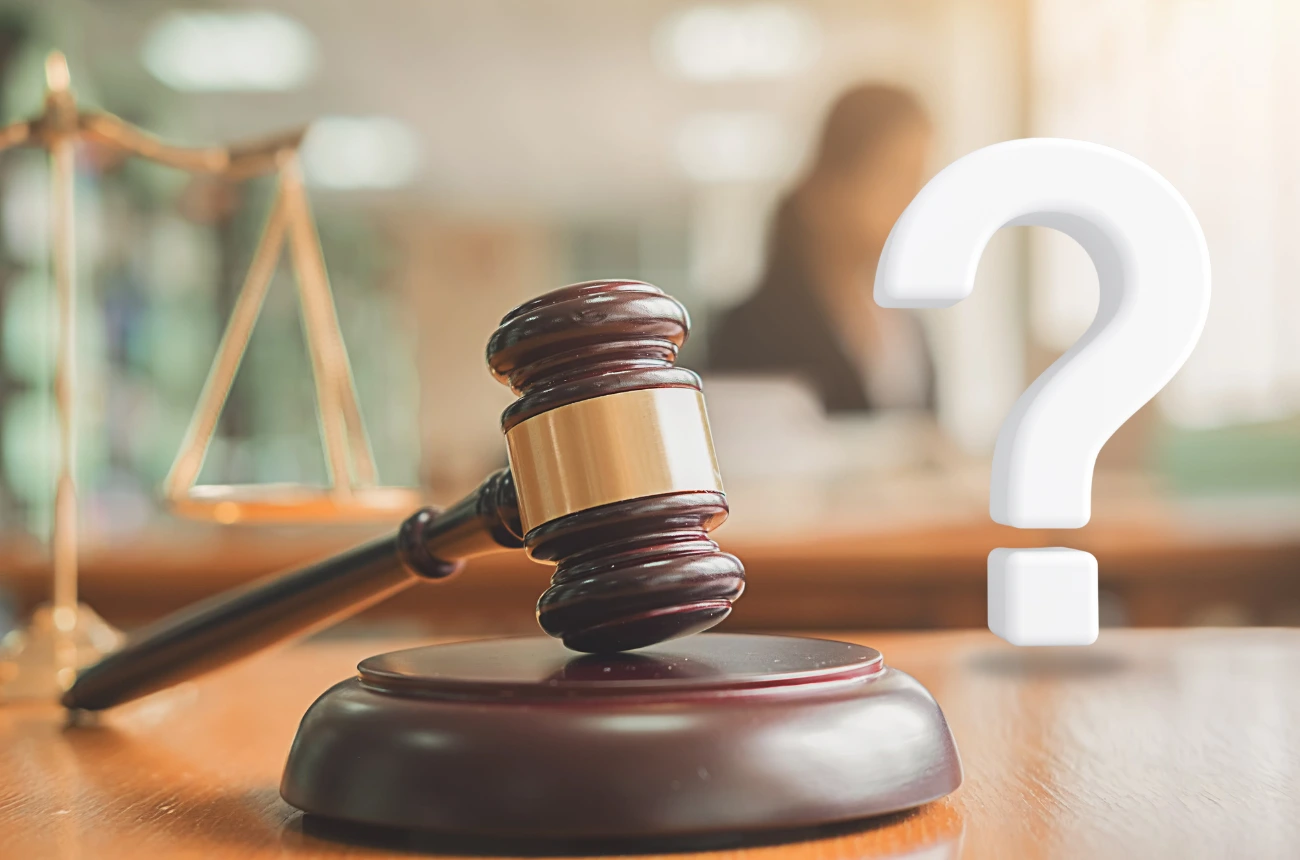After a truck crash, it’s easy to blame the first person you see — the truck driver. Drivers can certainly be negligent and should be held accountable when they are. However, there are often other parties who dropped the ball along the way.
Identifying every liable party, from trucking companies to cargo loaders, may help you get more compensation for your damages.
In this article, you’ll learn how fault and liability work in Texas and how to identify negligence by truck drivers, trucking companies, and other parties. You’ll also learn how to prove it, which can be the hardest part.
Strong legal representation from a personal injury law firm can make all the difference in uncovering the truth. And an experienced truck accident lawyer provides many services that make the whole process much less stressful.
But every case has its own set of complexities.
For clear answers about your unique commercial vehicle accident case, reach out to No Bull Law for a free consultation. We can give you no-nonsense insight on what to expect.
These three phrases are often used interchangeably, but they actually mean different things:
- Fault refers to who caused an accident.
- Liability is a legal obligation to compensate someone for damages.
- Negligence refers to a failure to act responsibly and in accordance with laws and regulations.
In truck accident cases, the driver may be at fault, but liability and negligence could also be assigned to the trucking company or other parties. We’ll explain this further in the next sections.
It’s also important to understand how fault and liability interact under Texas’ modified comparative negligence law. Under this framework:
- You can claim compensation for your damages if you were less than 51% at fault.
- If you were partially at fault, your compensation will be reduced by the percentage of fault you shared (e.g., 20% fault = a 20% reduction).
- You can claim from any and all parties more at fault than you.
In a settlement, it’s up to the lawyers and insurance adjusters to agree on fault assignments. If the case goes to court, the judge or jury decides the percentage.
Say you were involved in an 18-wheeler accident and assigned 10% of the fault, the truck driver 30%, and the trucking company 60%. This means you can recover damages from both the truck driver and the trucking company (although your compensation would be reduced by 10%).
But this begs the question: When is it truck driver negligence versus trucking company liability?
All Texas drivers have a duty of care to other road users, meaning they have a responsibility to obey traffic laws and drive in a reasonable manner.
Large trucks can cause a lot of damage when things go wrong, and a truck driver may be liable for damages in an 18-wheeler accident when they breach their duty of care. Examples of truck driver negligence include:
Speeding or driving too fast for road and weather conditions
- Distracted driving — e.g., using a cell phone while driving
- Driving under the influence of drugs or alcohol
- Driving while fatigued (when not a result of pressure from the trucking company)
- Failure to check blind spots
- Breaking traffic laws — e.g., skipping lights or ignoring road signs
- Careless or aggressive driving — e.g., drifting across lanes, sudden braking, and tailgating (not keeping a safe following distance)
A trucking company usually owns a fleet of trucks and hires truck drivers to operate them. In this role, they have many responsibilities, which are laid out by the Texas Department of Motor Vehicles and the Texas Transportation Code. The Federal Motor Carrier Safety Administration (FMCSA) sets additional regulations that take effect if the truck crosses state lines.
The truck company could be liable for your semi-truck accident if they failed to adhere to all the necessary regulations.
Some examples of trucking company negligence include:
Not providing drivers proper training
- Pressuring drivers to skip breaks or work excessive hours
- Hiring drivers with a history of negligence, or hiring without doing adequate background checks on drivers
- Knowingly allowing drivers to work while unfit — e.g., while sick, fatigued, or intoxicated
- Not keeping up with maintenance and commercial vehicle requirements
- Not having safe loading protocols and pre-trip cargo checks
Sometimes, trucking companies also take on vicarious liability. This means that, the way their contracts are set up, they automatically assume some liability for driver negligence, even if the trucking company didn’t break any regulations.
Regulations for trucking companies can be very complex. So, it’s very challenging for a truck accident victim to figure out what went wrong.
A truck accident lawyer with a solid understanding of trucking laws and regulations can help you identify wrongdoing on the part of the trucking company so that you can maximize your compensation. They’ll investigate their practices and procedures to find out if something wasn’t up to code for a commercial vehicle company.
Besides trucking companies and drivers, several other parties are involved in the full scope of operating commercial trucks and they, too, can be liable.
Here are some examples:
- Vehicle or parts manufacturers: If a truck malfunctions in a way that could not have been prevented with proper maintenance, the truck or parts manufacturer can be liable when an accident occurs.
- Third-party cargo loaders or maintenance companies: Some trucking companies outsource part of their labor to other companies. Those companies also have responsibilities to follow safety protocols. For example, if a commercial vehicle accident occurs because of loose cargo, a third-party cargo loader may be liable.
- Government agencies: Truck accidents can also happen when a municipality or other government agency fails to maintain roads, traffic lights, signs, or road markers. A truck accident victim may be able to hold them liable.
- Other road users: Other drivers, cyclists, pedestrians, and road users can cause hazards that lead to trucking accidents.
After a truck crash, justice is served when you get compensation for your related expenses and hold the right people accountable. To do this, you and your legal team need to prove liability.
But how?
In a truck accident case, proving liability can be tough. Trucking companies, insurers, and other parties often go out of their way to deny fault or shift the blame to avoid paying damages. Having an experienced Texas truck accident lawyer will be critical to your success.
There are four aspects of liability your accident lawyer needs to prove:
- Duty of care: As mentioned, drivers always have a duty of care to drive responsibly. But if you want to take legal action against a trucking company or other party, you need to prove that they had a responsibility over the vehicle’s safe operation.
- Breach of duty of care: Next, you must prove that the liable party failed to fulfill their duty of care. In Texas, a party who fails to act with the level of care that an ordinarily prudent person would have exercised in the same situation is deemed to have breached their duty of care.
- Causation: You also need to show that their breach of duty of care caused your damages. Texas law requires proof of both actual cause (“but for” the defendant’s conduct, the injury would not have occurred) and proximate cause (the injury was a foreseeable result of the conduct).
- Damages: Finally, you must prove that you experienced damages as a result of the other party’s negligence. Damages can be in the form of medical expenses, lost wages, pain and suffering, or other measurable losses.
So, to prove all of this, your attorney needs to gather evidence — examples include:
- Maintenance records
- Work logs
- Photos and videos of the accident scene
- Security or traffic camera footage
- Dashcam footage
- Witness statements
- Police and crash reports
- Company policies, handbooks, and contracts
- Black box data
- The driver’s employment records
- The driver or trucking company’s social media activity
Gathering this kind of evidence isn’t always easy. Much of it (like black box data, driver logs, or internal company policies) is controlled by the trucking company, and they’re under no obligation to hand it over unless legally required to do so.
In some cases, your accident lawyer may recommend filing a truck accident lawsuit early in the process. This allows them to use the power of the court to formally request or subpoena evidence during discovery, which can be crucial if the company is refusing to cooperate or if there's concern they may alter or destroy records.
Be assured that a skilled Texas truck accident lawyer has their methods for getting the evidence you need despite adversarial opponents.
But that’s not all an attorney does for injury victims!
When you hire a truck accident attorney, you get an ally who guides you through the entire process. They take all the hard legal aspects off your plate, provide clarity, and fight for your rights.
To give you an idea of how they can help an accident victim in a commercial truck case, here are a few of their core responsibilities:
- Investigating the accident and building a strong case with the right evidence.
- Calculating the full value of your damages, including future medical expenses.
- Preparing and filing claims and other essential legal documents.
- Handling all communication with insurers to save you time and protect you from having your words used against you.
- Negotiating with insurers for maximum compensation.
- Representing you in court if insurance negotiations don’t pan out in your favor or the liable party’s insurance can’t fully cover your damages.
- Giving clear, practical legal guidance so you always understand the process and your options and don’t make mistakes that could jeopardize your claim.
Of course, not all lawyers are equally skilled or trustworthy. The outcome of your truck accident case can depend heavily on the experience, strategy, and commitment of the lawyer you choose. That’s why it’s important to work with a team that knows how to win tough trucking cases.
No Bull Law is a personal injury law firm that’s built on straight talk, hard work, and getting real results for injury victims. We’ve handled complex truck accident cases across Texas and know what it takes to stand up to major trucking companies, insurers, and corporate legal teams.
When you work with us, you’re getting a team that’s fully dedicated to protecting your rights and fighting for every dollar you deserve.
Here’s how to get started:
- Book a free case consultation so we can talk about your case and answer your questions.
- We’ll assess your case and develop a plan based on the facts, the law, and what’s in your best interest.
- If we take your case, we’ll handle everything from start to finish — building a strong claim, standing up to tough opponents, and doing whatever it takes to get you the maximum compensation you deserve.
And we work on contingency. That means no upfront or hidden costs, and no fees unless we win.
In the wake of all the complexities of your truck accident claim, it’s normal to have questions. Here are some quick answers to help you understand your rights and what to expect:
1. What Types of Damages Can You Get in A Truck Accident Settlement?
Truck accident settlements can include several types of damages, depending on the circumstances and severity of the crash:
- Economic damages: These cover measurable financial losses like medical expenses, lost wages, and property damage. If you have a severe injury requiring ongoing care or rehabilitation, your economic damages should include future costs too.
- Non-economic damages: These compensate for more personal impacts, such as pain and suffering, emotional distress, loss of enjoyment of life, and permanent disfigurement or disability.
- Punitive damages: In rare cases of extreme negligence or misconduct, these are awarded in court to punish the wrongdoer and deter similar behavior.
2. What Special Challenges Arise in Trucking Accident Cases?
Trucking accident claims are often more complex than regular car accident cases, making strong legal representation a must-have. Here are some of the challenges your case may involve:
- Multiple liable parties: Shared responsibility might lead to multiple claims, liability disputes, and lengthy cases.
- Hard-to-access evidence: Crucial records are often controlled by the trucking company and may be lost without legal action.
- Severe injuries: A crash with a large truck can result in a severe injury with long-term or life-altering effects, which makes tackling the legal process even harder — especially when it comes to securing fair compensation.
- Aggressive defense: Commercial truck companies and insurers fight hard to limit payouts.
- Complex regulations: Cases may involve both Texas and federal trucking laws.
- Jurisdiction complications: Commercial truck accidents involving out-of-state companies can complicate where and how claims are filed, and which regulations are at play.
3. How Do Trucking Company Business Models Affect Settlements?
Not all trucking companies operate the same way. Some own their fleets and employ drivers, while others rely on independent contractors or use drivers who lease or own the trucks.
These setups can make it harder to determine who’s legally responsible for your damages. A skilled truck accident lawyer can investigate the company’s structure, uncover hidden relationships, and identify all potentially liable parties.
This helps ensure your claim targets the right insurance policies and gives you the best shot at full compensation.
4. What If the Truck Was Carrying Hazardous Materials?
Commercial trucks carrying materials like toxic chemicals, explosives, or flammables are subject to strict safety regulations and higher insurance requirements.
If your accident involved hazardous cargo, you may be entitled to higher compensation due to the risk of severe injuries, extensive property damage, and greater emotional trauma.
An experienced lawyer can help determine if safety violations occurred and pursue the full damages you deserve.
Liability Is Complicated. Your Legal Help Shouldn’t Be.
Texas truck drivers can be held responsible for accidents when they drive badly or break traffic laws. However, liability in truck accident cases is often more complex than it appears.
Accessing full compensation often requires an accident victim and their legal team to dig deeper and look at other potentially liable parties. Don’t let trucking company negligence or other liable parties fly under the radar.
An experienced truck accident attorney can gather crucial evidence, navigate complex regulations, and fight for the right compensation from the right people.
If you’ve been injured in a truck accident, contact No Bull Law for a free consultation. We know how to take on tough opponents and win.


